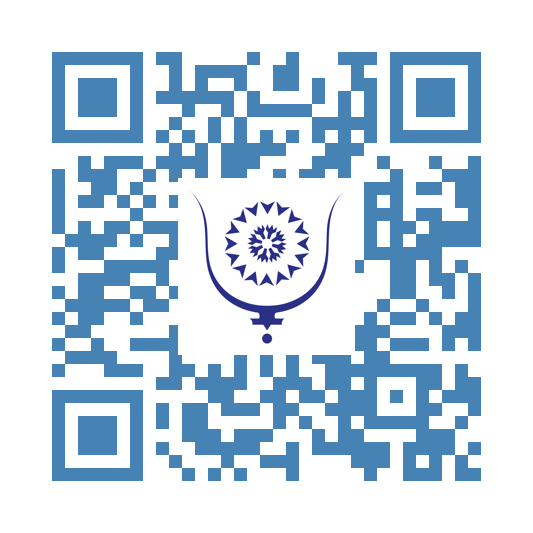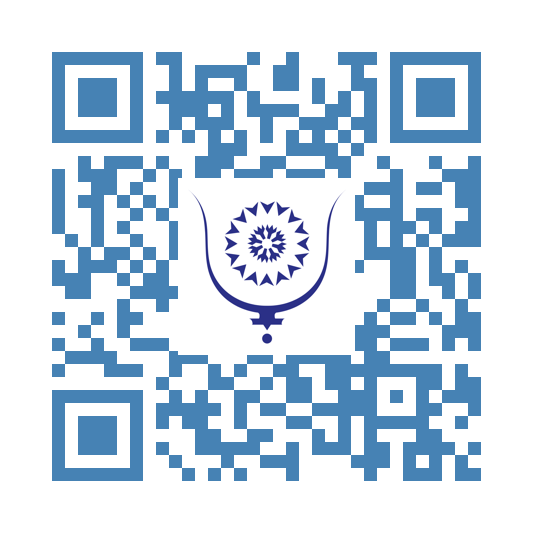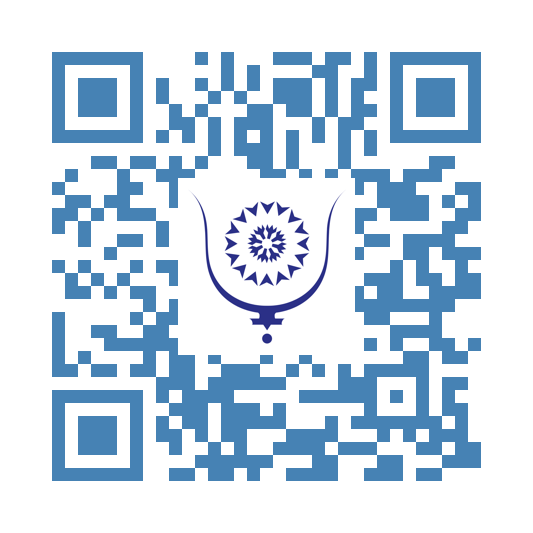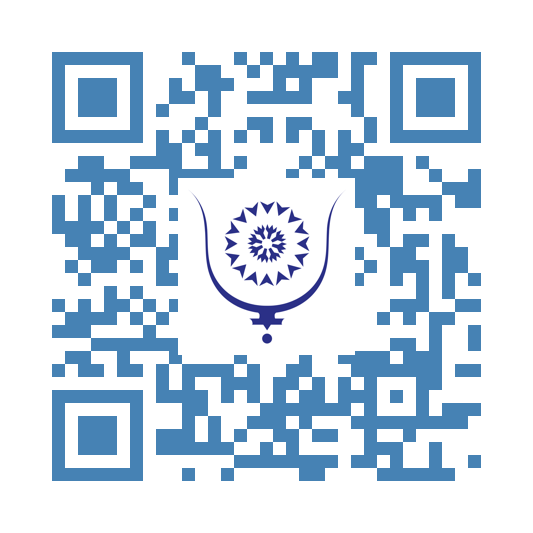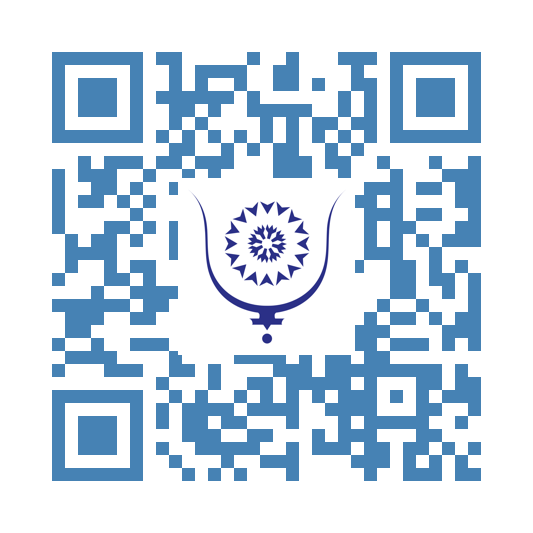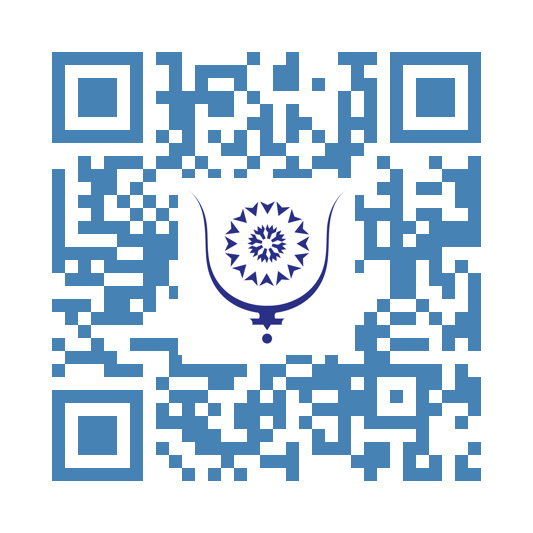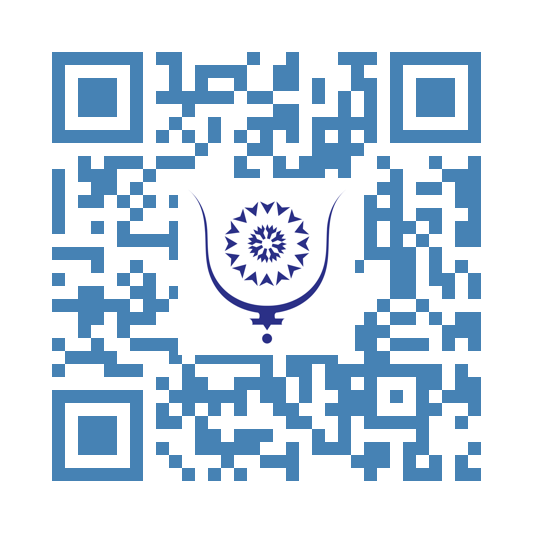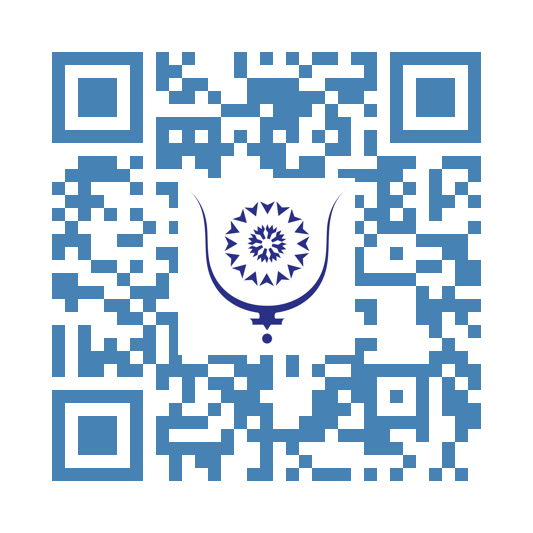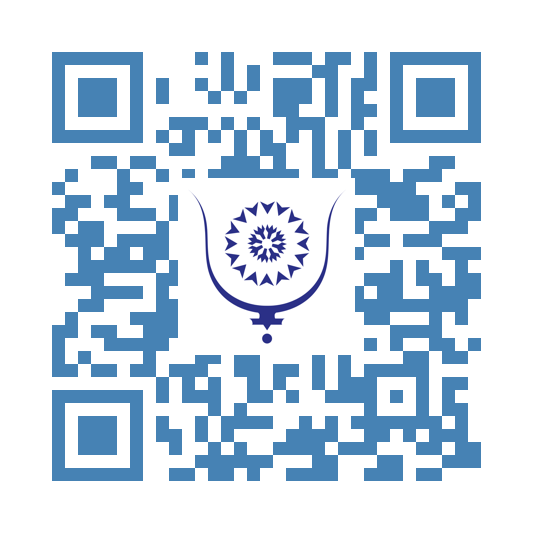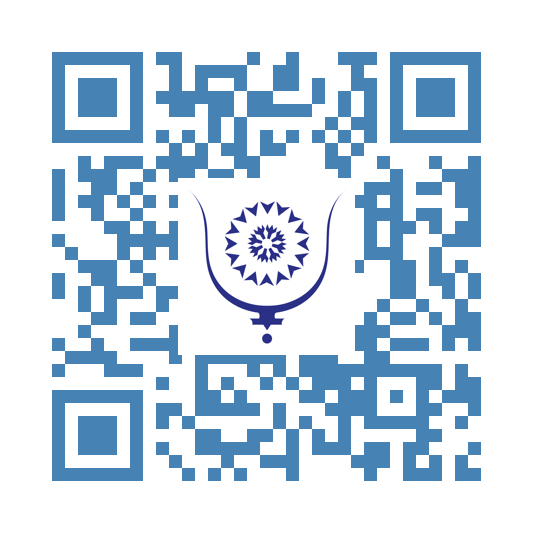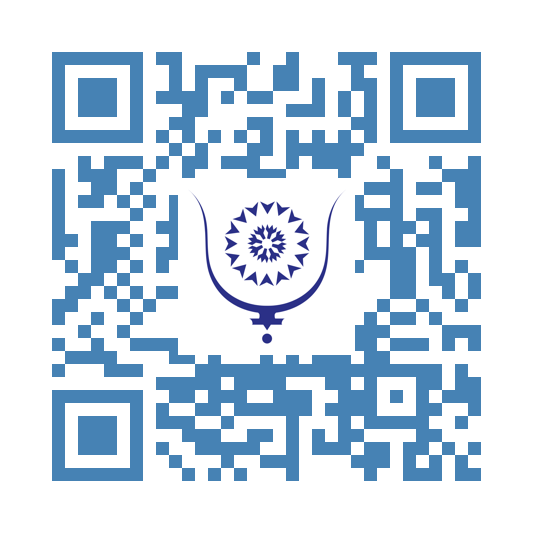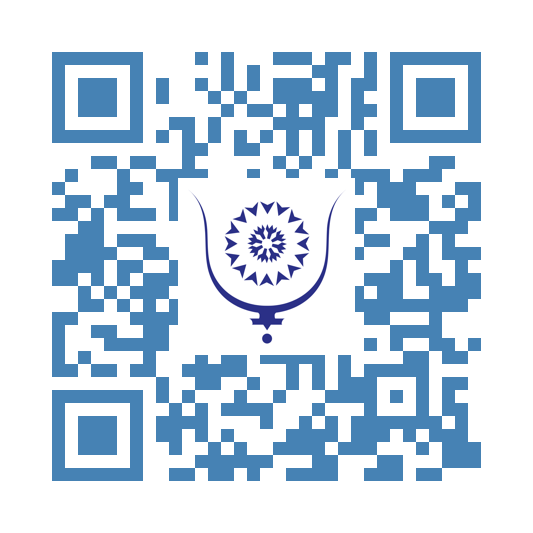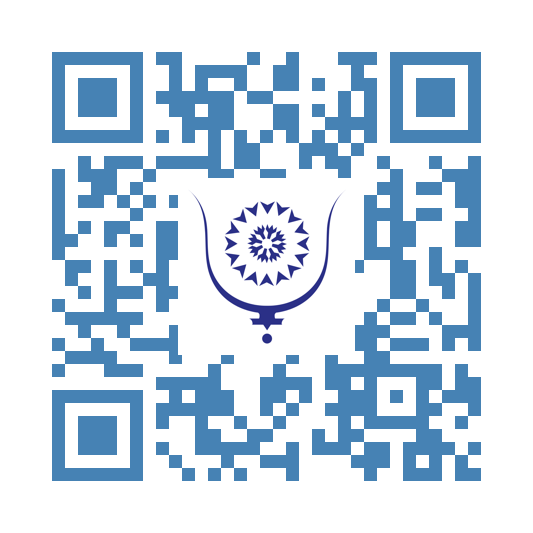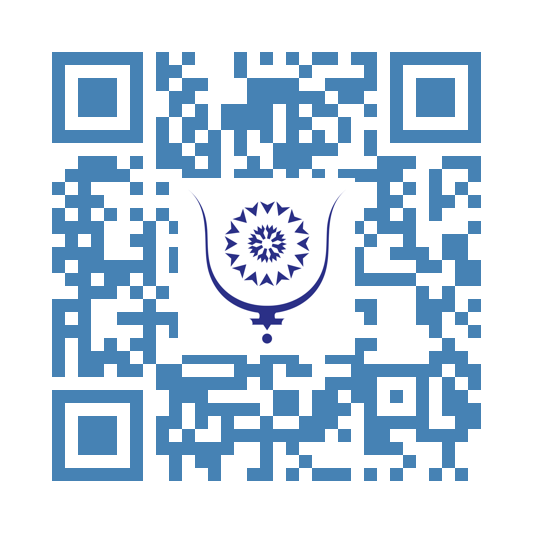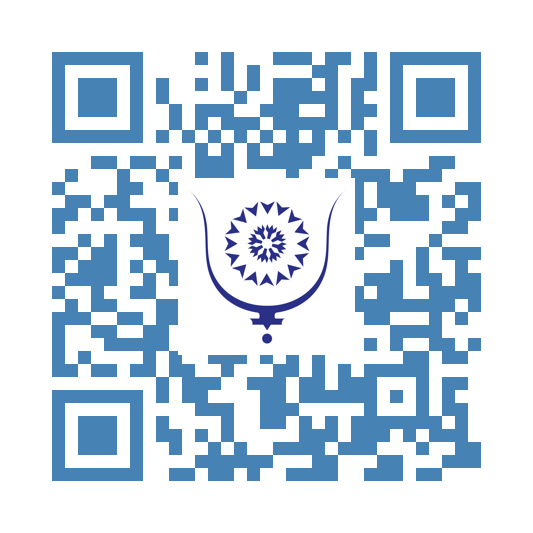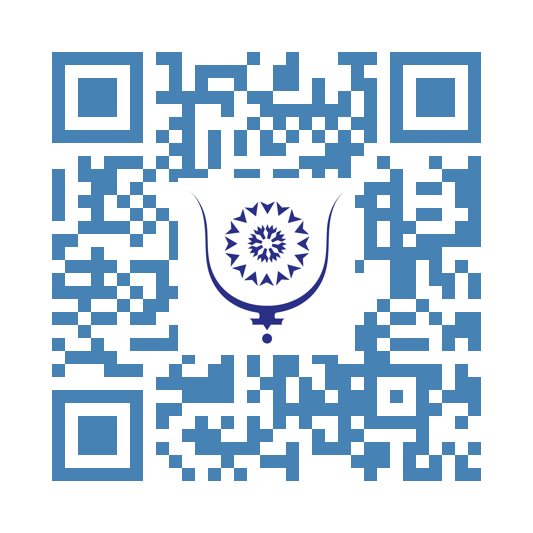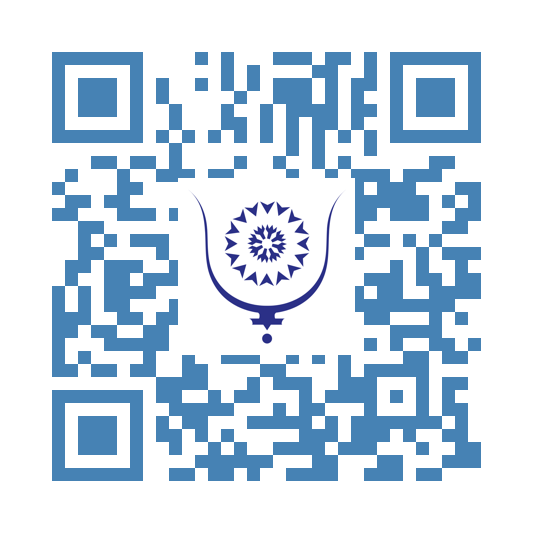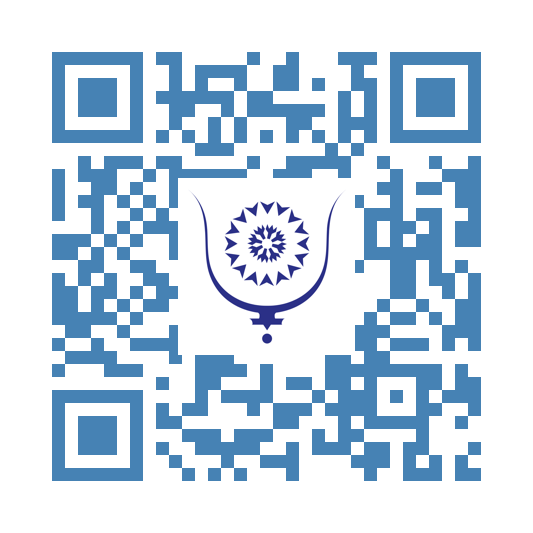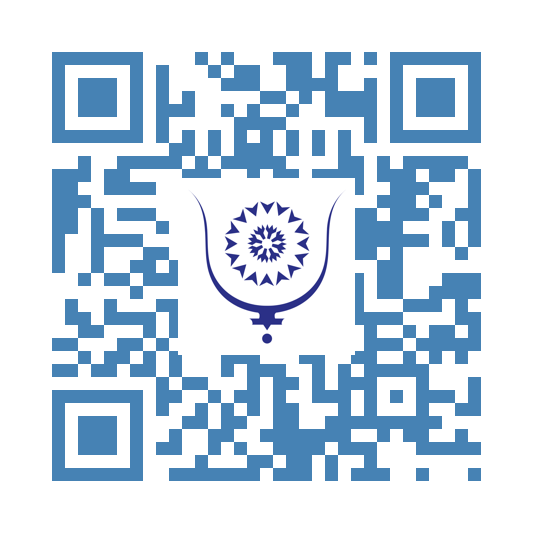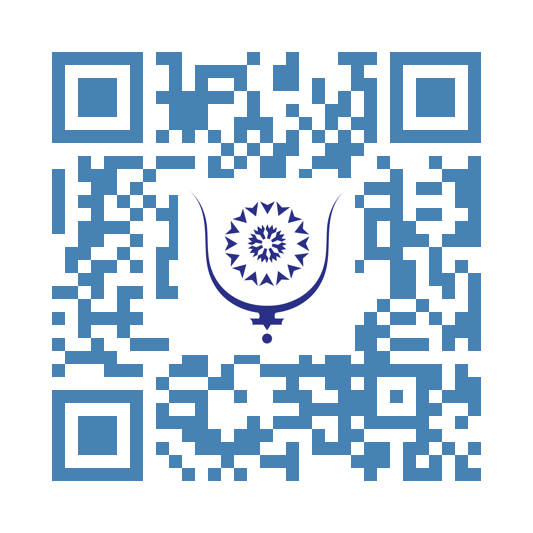It Starts with One Click. It Could Change Your Writing Life.
Picture this: You post your story. Within minutes, thoughtful writers offer ideas. You tweak, improve, and suddenly, you’re growing faster than ever. That journey starts by joining our private Discord now.

Think Forward.
Moving away from me 10420
By leaving me you exhausted me, and it's cruel
Have mercy on me my beautiful
You fucked up my passion
But one day you'll find your sanity
You cross me carelessly
Me who loves you and that's all the difference
They were beautiful our lovers' kisses
If you don't remember them
Ask your lips
They are still in fever
Our bonds were so strong
So much so that when our blood squirts
We don't know if it's yours or mine
Ask the night why these stars despite their splendor
And their glow
Are not worth that of your smile
O moon, if you accompany me in my loneliness ………and if one day I agonize in the meanders of space
Tell the darkness that the martyr of love is dead........
and sprinkle stardust on my shroud
Dr Fouad Bouchareb
Inspired by Farid Al Atrache's song >
https://youtu.be/57Xezl_YR6c?si=JVP_kEQZCY8rZbNF
All rights reserved
No Religion in Science But Ethics in Citizenship 8016
I write these words with deep respect and a sense of emotion. Professor Jamal Fezza my former high school philosophy teacher and later my thesis co-supervisor is currently facing an unfair wave of criticism. And I feel the need to publicly express my support.
Those who know him understand how deeply he embodies intellectual rigor, ethical integrity, and an unwavering commitment to what science is meant to be: a space for free thought, beyond identity-based boundaries.
In emotionally charged moments, it’s easy to withdraw into national or personal reactions. I know this I’ve experienced it myself. Once, I was faced with a difficult decision, and I chose not to attend a scientific event, out of loyalty to my country. But that decision was mine alone. I never asked anyone else to follow suit, nor did I demand that scientific spaces be shaped to reflect my personal stance.
That’s what Jamal Fezza is reminding us of today and that’s what I stand by: science should never be confused with foreign policy. Refusing to engage with researchers based on nationality is not an act of resistance it’s a step away from dialogue and intellectual integrity.
This doesn’t mean turning a blind eye to injustice. It means preserving the university as a place where ideas, not identities, are confronted.
I am proud to have had Professor Fezza as a teacher, and later as a mentor. But beyond the personal bond, I am above all grateful for the example he continues to set with clarity, honesty, and courage.
We need voices like his, especially when they are inconvenient.
You are leaving Bluwr.
We cannot guarantee what's on the other side of this link:
Morocco: Voices of Rebellion, From Najat Aatabou to El Grande Toto... 7423
The recent edition of Mawazine Music Festival did not go unnoticed and will be remembered. There were, of course, tens of thousands of citizens from all over Morocco and beyond enjoying the various stages, with Boutchart’s record simply making them sing along, as well as that great diva singing in playback, provoking the anger of those who cried scam. But above all, there was El Grande Toto. This great star of Moroccan and global urban music, whom many dislike, or dislike intensely.
El Grande Toto packed the audience, but also sparked a large number of articles and reactions, mostly unfavorable, with only a few exceptions. The majority of these reactions were rather critical, some almost scathing.
*Let me say it straight away: I am not a fan of El Grande Toto nor of his type of music. At my age, it would be an insult to my musical tastes, as I can only be soothed in my Arabic version by Doukkali, Abdelhalim, Belkhayat, Samih, Farid, Oum Kaltoum, and Abdelwahab; in my French version by Brel, Reggiani, Piaf, Barbara; and in my English version by Dylan, Clapton, BB King, James Brown, and many others.*
That said, I cannot judge those who dislike him, nor those who love El Grande Toto’s musical genre—that is, all the youth who identify with this style, who resonate with his intonations and rejoice in absorbing his lyrics. It is their time and their music.
This reminds me that about thirty years ago, Najat Aatabou could only be heard by accident, passing by a cassette seller’s stall in a souk or secretly in one’s car. Her music seemed annoying and her lyrics vulgar. It took a long time before she was finally accepted, and later adored.
What brings me to this topic is that there is something in the artistic trajectories of Najat Aatabou and El Grande Toto that resembles a broken mirror: the shards oppose and scatter, yet, upon closer look, they reflect the same reality. That of a multiple, rebellious Morocco, torn between its traditions and its desires for modernity. A Morocco that thinks it is what it is only little or not really. What it has never truly been except in a falsely constructed imagination.
Najat Aatabou is the hoarse voice of the Zemours, the one who emerged in Khémisset, carried by the winds of the Middle Atlas and the whispers of a society still constrained by honor, the gaze of others, and the strictness of conventions. In the 1980s, while the Kingdom was taking its first steps toward social openness, Najat dared to sing what so many women whispered in silence: thwarted loves, betrayal, emancipation, wounded pride, desire—all in rather raw language.
Her “Hadi Kedba Bayna” (“It’s an obvious lie”) resonates like a cry, soft but firm, in popular weddings, shared taxis, and the cozy living rooms of the Moroccan diaspora in Europe. With her, chaâbi, the music of the people par excellence, becomes a vector of affirmation. Najat does not apologize for being a woman, an artist, Amazigh, a rebel. She disturbs, sometimes shocks, but she imposes herself. Her music was even used in a global advertisement.
Forty years later, it is another Moroccan who shakes the walls of certainties: El Grande Toto, child of Casablanca’s suburbs, dyed hair, tattooed face and arms, and sharp tongue, imposes himself as the bard of an uninhibited Moroccan youth. With him, words snap in darija, intertwine with French and English, flirt unabashedly with taboos: drugs, money, sex, and challenge social hypocrisies. Where Najat Aatabou denounced half-words, Toto displays, claims, provokes.
Certainly, the forms differ: Najat draws from the ancestral repertoire, her melodies reminiscent of village weddings and the ululations of yesteryear. Toto, on the other hand, drinks from the sources of global rap, trap, and social networks, where punchlines matter more than silences. But behind these differences, the same sap nourishes their works: the thirst to speak, whatever the cost, without feeling guilty about anything.
Najat Aatabou paid a high price for breaking taboos. We still remember the harsh criticisms, the heavy judging looks, the outraged fathers. But time proved her right: she is now respected, even adored, seen as one of the great voices of popular Morocco.
El Grande Toto, meanwhile, is still in the midst of the storm. It will take him a long time before he is finally tolerated and accepted. Repeated controversies, court summons, accusations of indecency… Yet, his success does not wane. The numbers speak: millions of streams on platforms, growing international influence, a Moroccan youth that recognizes itself in his anger and dreams. They sing their reality and find themselves in him, whether we like it or not.
Ultimately, from the 1980s to today, across centuries, Morocco has never stopped telling its story through its most unsettling artists. There were others before: Zahra Elfassia, Fatna Bent El Houcine, and many known or unknown Chikhates, female voices of the frustrations and hopes of a silenced generation.
El Grande Toto, the insolent spokesperson of an urban youth in search of recognition, space, freedom, embodies this spirit today. We must not forget there were others before him: Faddoul, Nass El Ghiwane, Ach Kayne, Rebel Moon, and Lbig, among others. There was also a tradition of rebellion and bold language in malhoun with qassidas that one would no longer dare to sing nowadays, even in the most intimate circles.
Between them all, decades and universes, but also this invisible thread that connects those who dare to say out loud what others still keep silent. Perhaps that is what it means to be an artist in Morocco: to shake the established order, to hold a mirror to society, and to accept to pay the price, even if it is too high...
The Smara Attack: A Reflection of Power Struggles in Algeria... 7411
The recent Polisario attack on Smara, in the Moroccan Sahara, takes place within a context of deep divisions within the Algerian military hierarchy, which directly influence the policy of the Algerian state. These internal tensions, marked by strategic rivalries, impact the Algiers-Polisario strategy vis-à-vis Morocco.
This offensive, targeting notably a MINURSO base and the small airport of Smara, reflects the will of certain sectors of the Algerian army, supporting the Polisario, to challenge the international community and counter American diplomatic pressure, particularly the bill in Congress aiming to designate the Polisario as a terrorist organization. This move also likely reflects a disagreement within the Algiers-Polisario alliance, exacerbated by the request of the Algerian Chief of Staff, Said Chengriha, to return the Iranian weapons supplied to the Polisario, signaling a probable change of course under international pressure.
The Polisario, dependent on Algerian authorities for its actions, illustrates through this attack the fractures within the Algerian military hierarchy. Several currents oppose each other: some advocate rapprochement with France, others maintain the historic relationship with Russia, while others seek to appease the United States. These divergences are amplified by regional geopolitical stakes, notably the war in Ukraine, and by Morocco’s rapprochement with Sahel countries, which exasperates certain members of the general staff.
Moreover, the concentration of military, political, economic, and diplomatic powers in the hands of General Chengriha fuels tensions with the civilian presidency. President Tebboune, although formally head of state, sees his authority challenged, as demonstrated by the private meeting with Emmanuel Macron held without prior consultation of the general staff, causing a cooling of relations at the top before the ‘president’ was reprimanded.
These internal conflicts directly influence the management of the Sahara dossier. The Polisario attack appears as an expression of power struggles: some officers favor an aggressive posture to preserve their influence, while others prioritize caution in the face of risks of diplomatic isolation and sanctions.
The increasing integration of the military into the civilian administration, reinforced by a recent presidential decree, illustrates the general staff’s desire to control all levers of power, accentuating the politicization of the army and internal tensions.
Finally, the fact that the attack did not achieve its major objectives seems deliberate, constituting a kind of “signature” with Iranian rockets. This gesture can also be seen as a sign of despair from a diplomatically isolated movement and an indicator of divisions at the military top, with some seeking to show that a change of power could open other regional options.
This operation, far from unanimous, weakens Algiers’ position and strengthens the arguments of figures like Joe Wilson and Jimmy Panetta.
Highlighting that major national decisions occur within a context of internal rivalries within the military institution, a pillar of power in Algeria, no one can believe that the decision to launch rockets against Morocco was made in a unanimous conclave.
Make Your Posts Beautiful: Bluwr Text Formatting Guide 7323
Bluwr has a simple text formatting system that automatically transforms your writing into beautifully styled posts. Here's how to use these powerful features to make your content stand out.
==Essential Text Styling==
**Bold Text**
To make text bold, wrap it with two asterisks on each side. For example, if you write two asterisks, then the word "important", then two asterisks, it will appear in bold formatting.
;;
asterisk asterisk important asterisk asterisk
;;
*Italic Text*
For italic text, use single asterisks around your words. Write one asterisk, your text, then another asterisk.
;;
asterisk text asterisk
;;
__Underlined Text__
Create underlined text by using two underscores before and after your text.
;;
underscore underscore highlighted underscore underscore
;;
==Layout Elements==
Create Visual Breaks
Want to add a horizontal line to separate sections? Simply type four dashes in a row.
;;
dash dash dash dash
;;
Center Your Text
Make text appear centered by wrapping it with two equals signs.
;;
equals equals This text will be centered equals equals
;;
Show Code and Examples
Display code or preserve exact formatting by wrapping text with two semicolons. This is perfect for showing examples or code snippets.
;;
semicolon semicolon
Your code here
semicolon semicolon
;;
==Lists and Organization==
Bullet Points
Create bullet lists by starting each line with a dash and a space.
;;
dash First item
dash Second item
dash Third item
;;
Numbered Lists
Make numbered lists by starting lines with numbers and periods.
;;
1. First step
2. Second step
3. Third step
;;
==Automatic Magic==
**Lead Paragraphs**
Here's something special - Bluwr automatically styles the first sentence of your post as a lead paragraph. Just write naturally and your opening will be highlighted to draw readers in.
**Smart Processing**
All these formatting options work together seamlessly. The system processes your text in the background, so you can focus on writing great content while Bluwr handles the presentation.
==Pro Tips for Great Formatting==
- **Mix different styles** for rich, engaging posts
- **Don't overdo it** - let your content be the star
- **Use bullet points** to break up longer paragraphs
- **Try centered text** for important announcements
- **Code blocks** are perfect for sharing examples or preserving specific formatting
**Start experimenting** with these formatting options in your next post. They're designed to be intuitive - just type naturally and watch your words transform into beautiful, readable content that captures your readers' attention.
The best part? Once you learn these simple patterns, they become second nature. Your posts will look professional and polished without any extra effort.
Gnosticism 7401
Gnosticism (from the Greek γνῶσις, gnosis, meaning “knowledge” or “insight”) refers to a diverse set of spiritual movements that emerged in the early centuries of the Common Era, primarily within the Greco-Roman world. These traditions share a central conviction: that the human soul contains a divine spark exiled in a flawed or fallen material world, and that salvation comes not through faith alone, but through direct, experiential knowledge of spiritual truths.
Gnostic cosmology, at its core, shows a clear dualism between spirit and matter, light and darkness, knowledge and ignorance. The cosmos is depicted as the creation not of the highest God—Ἀγαθός Θεός (Agathos Theos, the Good God)—but of a lesser, ignorant, or even malevolent power often termed the Demiurge (Greek Δημιουργός, Demiourgos, meaning “artisan” or “builder”). This Demiurge, sometimes identified with the god of the Old Testament in certain Gnostic sects, fashions the material world as a prison or illusion, veiling the true divine realm.
In Gnostic thought, the true God resides beyond the material cosmos, in the fullness of divine being known as the Pleroma (Greek Πλήρωμα). From this realm of light emanate spiritual beings or Aeons (Greek Αἰῶνες, Aiones) in harmonious pairs, representing aspects of divine mind, love, and will. A disruption in this celestial order—often symbolized by the fall or error of an Aeon such as Sophia (Greek Σοφία, Sophia, meaning “Wisdom”)—leads to the creation of the material universe and the entrapment of divine sparks within human souls.
Salvation in Gnosticism is not achieved through external rites or adherence to dogma, but through gnosis itself: a deep inner awakening, in which the soul remembers its true origin and destiny. This knowledge is both intellectual and mystical, a direct experience of the hidden God and the realization of one’s divine nature. Thus, the Gnostic path involves a journey of inner revelation, often guided by a redeemer figure who descends from the Pleroma—whether portrayed as the Logos (Λόγος), the true Christ, or another messenger of light.
Gnosticism often emphasizes the rejection of the material world's illusions and corruptions, while seeking purity of spirit and alignment with the divine order. Yet, the diversity of Gnostic schools means that some embraced asceticism, avoiding bodily pleasures as snares of the Demiurge, while others saw no harm in engaging with the world’s forms, recognizing them as ultimately empty of true substance.
Gnostic scriptures, many of which were lost or suppressed for centuries, survive today in collections such as the Nag Hammadi library discovered in 1945. Several texts like the Gospel of Thomas and the Apocryphon of John offer rich and symbolic teachings, blending different elements into a vision of spiritual liberation.
Throughout history, Gnosticism has influenced mystical and esoteric traditions, from Manichaeism and Hermeticism to modern currents of Theosophy and some aspects of psychology. At its core, Gnosticism invites the seeker to look beyond appearances, to pierce the veil of the world’s illusions, and to remember the divine origin of the soul. In this way, it calls the human being not to blind belief, but to awakening—through gnosis—to an aspect of truth hidden at the heart of existence. being.
Council of Europe Conference on Human Rights in Sport Held in Rabat, Morocco. 7446
The Council of Europe, in collaboration with the Ministry of Preschool Education and Sports, and with the support of the Swiss Embassy to the Kingdom, organized in Rabat on June 23 and 24 a conference dedicated to Human Rights in Sport. All relevant departments and administrations, the national sports movement, as well as researchers specializing in the field were invited.
The choice of date was no coincidence: we are just a few months away from the 2025 Africa Cup of Nations, and a few years from the FIFA World Cup co-hosted by Morocco, Spain, and Portugal. These major sporting events require the Kingdom to strengthen and update its legal and institutional framework regarding human rights in sport.
For the Council of Europe, sport is not only an essential physical and social activity but also a fundamental vector of human rights, embodying values such as respect, non-discrimination, solidarity, and justice. To protect and promote these rights, it relies on several key conventions: the Macolin Convention, the Anti-Doping Convention, and the Saint-Denis Convention. These legal instruments form the cornerstone of its commitment to ethical, safe, and inclusive sport.
Morocco has signed the Macolin Convention, which is awaiting ratification. It has also acceded to the provisions of the Anti-Doping Convention but remains an observer regarding the Saint-Denis Convention.
The conference therefore addressed these different legal frameworks, further explained them, and reviewed the Kingdom’s progress in these areas.
Following the official opening and presentations by the departments of the Ministry of National Education, Preschool and Sports, the Ministry of Justice, the Public Prosecutor’s Office, the representative of the Royal Moroccan Football Federation, Swiss ambassador and the Head of the Council of Europe Office in Rabat, several experts took the floor to elaborate on the theme:
Prof. Younes Lazrak Hassouni presented the Moroccan national legal framework concerning human rights in sport.
Dr. Fatima Abouali, President of the Moroccan Anti-Doping Agency (AMAD), spoke about AMAD’s commitment to respecting human rights. The Anti-Doping Convention (1989, amended in 2002) seeks to preserve health and sporting fairness by eradicating doping, which is considered a violation of sports ethics and a threat to athletes’ health. It supports the fundamental right to healthy and fair sport, guaranteeing the dignity of participants.
Mr. Younes El Mechrafi, General Director of Moroccan Games and Sports, addressed the fight against illegal betting in light of the Macolin Convention, highlighting recent developments, particularly in combating illegal betting. The Macolin Convention (2014) aims to strengthen national coordination and international cooperation to prevent and combat the manipulation of sports competitions, whether related to criminal activities or sports betting. It protects the integrity of sport, ensuring a fair environment for athletes and spectators—an essential aspect of human rights in sport.
The Moroccan presentations were followed by those of Council of Europe experts:
Ms. Elena Caser, from the Sports Division, outlined the Council’s priority areas for preserving sports integrity.
Mr. Nicolas Sayde detailed the implementation of the Macolin Convention to combat competition manipulation, using concrete examples.
Ms. Marie Françoise Glatz, Secretary of the Saint-Denis Convention, presented the principles and standards of this convention, emphasizing its integrated and multi-institutional approach to the secure management of sporting events.
Mr. Paulo Gomes, Head of the Convention Unit, stressed the added value of this convention for Morocco, especially regarding a strengthened legal framework and the security of upcoming major sporting events.
The objective was clear: to convince Morocco to fully adhere to the Saint-Denis Convention. To date, this convention is the only binding international instrument that establishes an integrated approach to ensure the safety, security, and quality of services at sporting events. It promotes close cooperation between public authorities, private actors, and supporters to create welcoming, safe sporting events that respect human rights, particularly in combating violence, racism, and discrimination.
This last convention sparked extensive debate, especially among representatives of the Ministry of Justice, the Public Prosecutor’s Office, and the General Directorate of National Security, as Morocco is currently preparing its legal arsenal for hosting the Africa Cup of Nations and the World Cup, in accordance with the requirements of various specifications.
Beyond international conventions, Morocco is one of the few countries in the world to have enshrined sport and physical activity in its Constitution. It establishes these as a right for citizens and an obligation for the State. Physical activity constitutes the primary pillar of any comprehensive health system, both physical and mental. Sport plays a crucial role through its recreational, social, political, and geopolitical dimensions. It is also an important economic sector, contributing significantly to GDP, directly or indirectly.
The Kingdom has a solid normative framework: Law No. 30-09 on physical education and sports, Law No. 84-12 on the organization of sports activities, Law No. 09-09 against violence in stadiums, and Law No. 97-12 on anti-doping, which regulates controls and sanctions. These laws are complemented by Decree No. 2-10-628 of 2011 relating to Law 30-09.
This fairly comprehensive system aims to make sport a space of respect, fairness, and solidarity, in line with the universal values of human rights.
The proper organization of sporting events, the fight against doping, and the fight against violence form a fundamental triptych guaranteeing integrity, health, safety, and respect for fundamental rights in sport.
This integrated vision places sport at the heart of public policies promoting human rights, making it a powerful lever for a fairer, more inclusive, and more united society.
Holding this conference in Rabat confirms the Kingdom’s determination to comply with the highest international standards in this field and demonstrates its openness to cooperation with its partners, notably the European Union and its dedicated bodies.
Mauritania’s Ambiguous Stance on the Western Sahara Conflict 7302
The Mauritanian Minister of Culture, Arts, Communication, and Relations with Parliament, Government Spokesperson El Houssein Ould Meddou, recently spoke on France 24 regarding Mauritania’s position on the so-called Western Sahara conflict. Clearly uncomfortable, to the point of appearing surprised by the journalist’s question, he seemed to stammer while affirming that Mauritania adopts a policy of neutrality, introducing a new concept: that of “positive and active neutrality” in this matter.
Very clumsily, he reduced the issue to a matter between Morocco and what he called “the Sahara,” without specifying who exactly he meant. He got further bogged down when he claimed that his country does not limit itself to a passive stance but is sincerely committed to contributing to a fair political solution, serving regional stability and the interests of all parties involved. Again, no clarification was given on who these parties are, and whether his own country is included or not. This borders on contradiction with his earlier statements.
According to the Minister, this neutrality is expressed notably by Mauritania’s willingness to play a central role in facilitating dialogue between the conflict’s actors, fostering a climate of trust and overcoming political deadlock. However, he seemed not to have carefully read the Security Council resolutions since 2007.
The Minister showed more irritation when the journalist asked about the closure of Lebriga, the border post between Mauritania and Algeria. He appeared unaware of this closure, which is surprising given that the decision sparked major controversy and strong reactions from separatists against his own country and government. After some hesitation, he awkwardly stated that the recent Mauritanian decision to close the Lebriga crossing on the Algerian border was a measure taken for internal security reasons, aimed at controlling crossings and protecting national sovereignty. His attempt to recover only entrenched him further. For him, this decision has no political significance and targets no particular party but responds to a state approach to securing borders. Quite astonishing.
The Mauritanian Minister thus explicitly reduced the so-called Western Sahara conflict to a simple matter between Morocco and what he called “the Sahara.” Did he realize at that moment the sensitive political repercussions he was causing? Indeed, this position was perceived as indirect support for the Algerian version of the conflict. Algeria quickly reacted by officially inviting the minister and bestowing many honors on him. This instant Algerian response can only be interpreted as a reward for the minister’s risky stance.
He thus placed himself in a situation where he contradicted himself. The “positive neutrality” he mentioned becomes clear: it is actually alignment with the Algerian position.
This situation embarrassed the Mauritanian government and presidency, which did not officially endorse the minister’s remarks. Several government members expressed discomfort with this statement, emphasizing that it does not reflect Mauritania’s official position.
Moreover, within Mauritanian civil society, critical voices emerged, denouncing the apparent ignorance of the minister on sensitive issues, notably the border with Algeria. During the interview, the journalist noted that the minister seemed poorly informed on this subject, which heightened the discomfort around his statements.
On the Moroccan side, the reaction to the Mauritanian government spokesperson’s remarks was very measured, even officially nonexistent. Morocco, as usual, chose not to publicly respond to this declaration, probably considering that the Mauritanian minister is only a marginal actor, not part of Mauritania’s true leadership circle. This silence can be interpreted as a strategy to avoid giving importance to these remarks, so as not to fuel unnecessary controversy or unduly embarrass Mauritania’s real leaders.
It should be noted that this interview took place before recent Polisario strikes near Smara, close to MINURSO positions, which officially complained. The mercenaries operated by passing through Mauritanian territory, where they were neutralized by the Royal Armed Forces.
The clumsy declaration of the so-called spokesperson created implicit diplomatic tension, revealing internal divisions in Mauritania and illustrating the regional complexities surrounding the so-called Western Sahara conflict, where every stance is scrutinized and can have significant diplomatic consequences, without hindering the inevitable and confirmed historical evolution: the progress and consolidation of the solution proposed by Morocco, reinforced by the recognition of the Moroccan sovereignty over the territories in question by nearly all key countries, among others.
By his posture, the minister thus disregarded recent developments, notably the bipartisan introduction in the U.S. Congress of the “Polisario Front Terrorist Designation Act,” which a political leader in his position could not have ignored.
He simply sidelined his own country, which is directly impacted.
Infernal passion 7234
Fire of passion
To the one whose fire of passion burns me
How to win your heart, tell me
I remain lost and confused and I have no choice
I gaze at the stars and lose sleep
Yet you promised me the earth and the stars
And you swore that like a branch you would resist the wind
And that you would hold firm
But at the first breath you bent
And you shied away at the risk of breaking everything
Long gone are the days of your promises
Of joys and gladness
Your indifference is morbid
It kills me and drains me
You walked away after a fleeting romance
Yet it is neither your habit nor your style
It was then that I understood that you were gone for good
And I sat down and gave myself over to the wind
Mourning your departure
The night then How late it is
I put on mourning clothes
And wept, overcoming my pride
I will complain to the judge of passion
And denounce your schemes and your ways
Only he will know how to do me justice
And repair your wrongs
So you will feel what I feel
And you will burn just like me by the fire of passion
Dr. Fouad Bouchareb
All rights reserved
Inspired by a mawal of Andalusian music
January 1, 2025
Bipartisan U.S. Bill Seeks to Designate Polisario Front as Foreign Terrorist Organization 7377
A promis is a promise.
As he had already announced a few weeks ago, Joe Wilson, a Republican senator representing South Carolina, has just introduced a bipartisan bill in the United States House of Representatives aimed at designating the Polisario Front as a foreign terrorist organization. This bill is bipartisan because it is also signed and proposed by California Democratic Senator Jimmy Panetta.
The project, titled "Polisario Front Terrorist Designation Act," aims to list the Polisario on the U.S. list of terrorist organizations. Being on this blacklist automatically triggers severe sanctions, such as the prohibition of any material or financial support, freezing of assets under U.S. jurisdiction, and entry bans to the United States for members of the organization. By extension, the vote on this bill will also have a direct and significant impact on the host country of the Polisario and its potential supporters.
The content of the bill is simple and clear. The Polisario is described as a Marxist militia supported by Iran, Hezbollah, and Russia. It is asserted that this militia destabilizes the Western Sahara region and threatens the security of the Kingdom of Morocco, a steadfast historical ally of the United States.
The bill also highlights alleged links between the Polisario and extremist groups in the Sahel, while mentioning serious accusations of human rights violations committed by the militia.
Senators could have enriched the text by recalling the origins of the movement, notably the support from Cuba and the generosity of Gaddafi towards it for decades. This will likely be discussed during debates.
In the current geopolitical context, the Polisario is perceived as an Iranian proxy hostile to regional stability, particularly due to its involvement in smuggling networks and terrorist activities in the region, facts that are well documented. The text thus seeks to officially recognize the Polisario as a terrorist entity, which would allow, besides international sanctions, to strengthen security cooperation against this separatist movement.
The initiative has a very strong chance of succeeding after, of course, satisfying all necessary steps and procedures.
The bill was introduced on June 24, 2025, and is currently under review by the Foreign Affairs and Judiciary Committees of the House of Representatives.
The U.S. legislative process involves several steps: committee review and approval, House vote, Senate passage, and then the President's signature.
The exact duration of the process varies, but committee review usually takes several weeks or months, followed by votes in plenary sessions. The bill seems to enjoy strong support, as it is sponsored by both a Democrat and a Republican, eliminating partisan division at this level. It could be adopted in the coming months, although nothing guarantees a rapid or certain progression, as political and geopolitical debates could influence the timeline.
Adopting this law would mark a historic shift in U.S. policy on Western Sahara, with significant diplomatic and security implications. The United States, having already officially recognized the Moroccan sovereignty over the concerned provinces, would thus strengthen its position and lead to increased support for Morocco. The resolution of the artificial conflict, which has lasted half a century over the southern provinces of the Kingdom, has never been closer.
The Republican majority controls both the House and the Senate, with 218 seats out of 435 in the House and 53 out of 100 in the Senate, which would facilitate the bill's passage. Moreover, Republicans are very disciplined and strongly support this initiative, notably due to their loyalty to Donald Trump and the expressed support of Secretary of State Marco Rubio, who aligns with Moroccan positions. The bill introduced by Senators Joe Wilson and Jimmy Panetta therefore has a strong chance of quickly succeeding. The text benefits from bipartisan support, increasing its chances of adoption without major obstacles.
The geopolitical context, reinforced by recent reports from American think tanks Heritage Foundation and Hudson Institute demonstrating the terrorist nature of the Polisario and its links with Iran and other hostile actors, politically legitimizes this proposal. The bipartisan bill aiming to designate the Polisario as a terrorist organization thus finds its full justification given the proven links with actors hostile to American and Moroccan interests, as well as its destabilizing activities in the region.
Once the law is adopted by both chambers, the President has ten days to sign it, which can accelerate its enactment if the executive is favorable, which seems very likely.
The flower of my dreams 7357
The flower of my dreams
Oh ! Flower of my dreams grown in my heart
And that they took me away
Wrongly, what a horror!!
hands have crumpled it cruelly
Yet her beauty dazzled the eyes
A gift from the God of heaven
She bewitched young and old
Now the fire of my passion has gone out
My heart lies empty and bruised
I sacrificed my life
I lost the rhythm of my melodies
And like a bird perched on a branch I dare
sing to my faded, to my rose
Poetry and prose
Hoping to see her resurrected
And regain its former splendor
Thus dreams hopes will be reborn
She will shine with her beauty
And will be the star of my bouquet
Inspired by the song of Farid Al Atrache (يا زهرة في خيالي)
Dr Fouad Bouchareb
July 19, 2022
All rights reserved
The Picatrix 7629
The Picatrix is one of the most influential and enigmatic texts in the history of Western esotericism. Originating in the Islamic world under the title Ghāyat al-Ḥakīm (“The Goal of the Wise”), the Picatrix is a comprehensive treatise on astrology and magick—the practice of harnessing celestial forces to affect material and spiritual realities. Written in Arabic in the 10th or 11th century and later translated into Latin in the 13th century, the Picatrix became a cornerstone of Renaissance occult philosophy, influencing figures such as Marsilio Ficino, Cornelius Agrippa, and Giordano Bruno. Today, it remains a vital source for students of Hermeticism, ceremonial magic, and astrological thought.
The text is attributed “al-Majriti,” a name linked to the 10th-century Andalusian scholar Maslama al-Majriti, though its true authorship remains uncertain. The Picatrix is composed of four books, comprising am extensive body of magical theory and practice derived from Greek, Persian, Indian, and Arabic sources. It synthesizes astrology, natural philosophy, alchemy, talismanic magic, and cosmology into a grand vision of the universe as a living, interrelated system of energies that can be accessed and manipulated by the initiated practitioner.
At its core, the Picatrix presents a worldview in which everything is connected through celestial correspondences. The stars, planets, and zodiac are not merely distant bodies, but intelligent forces (often referred to as spirits or intelligences) that shape life on Earth. By understanding the timing, nature, and hierarchies of these celestial influences, the magician can create talismans, perform rituals, and engage in spiritual ascent. These practices are meant not only to acquire worldly benefits—such as love, protection, wealth, or knowledge—but also to align the soul with the divine order of the cosmos.
The Picatrix outlines:
- Detailed planetary correspondences, including planetary spirits, colors, stones, herbs, animals, and incenses;
- Astrological timing for magickal operations, especially elections for creating talismans and invocations;
- Rituals for contacting planetary intelligences or channeling their power into material forms;
- Philosophical and spiritual foundations, arguing that magick is a divine science requiring purity of soul and alignment with the One.
Importantly, the Picatrix treats magick as a sacred art, not merely a mechanical or superstitious activity. Its author warns repeatedly that the true magician must be a philosopher, guided by intellect, discipline, and virtue. In this sense, the text reflects a Neoplatonic essence, where matter is seen as a shadow of spirit, and magick as a bridge between the visible and invisible worlds.
The language of the Picatrix is often dense, symbolic, and encoded. It contains long lists of ritual ingredients, planetary names, and talismanic configurations. Some of its instructions are highly technical; others are deeply mystical, involving dream incubation, purification, meditative states, and ecstatic union with celestial beings. This dual nature—simultaneously scientific and mystical—has made the Picatrix a text of enduring fascination.
Its influence on Renaissance occultism was immense. Translators and scholars such as Albertus Magnus, Pietro d’Abano, and Marcilio Ficino drew upon its doctrines in the development of astral magic and natural philosophy. Even today, the Picatrix is considered a masterwork of magical cosmology, representing one of the most complete works of how the stars and the soul interact.
To summarize, the Picatrix is not simply a magickal grimoire—it is a profound philosophical treatise on the structure of reality and the place of humanity within it. It teaches that the macrocosm and microcosm are reflections of one another, and that the wise—through discipline, knowledge, and intention—can influence one to elevate the other. As such, it stands as a remarkable synthesis of astrology, magic, and metaphysics, offering both a roadmap for practical sorcery and a guide for spiritual ascent.
Pigeon 7543
I saw a pigeon in the valley
who was crying in sorrow and called in vain
his lover who left him this morning
He repeated to anyone who would listen to him
how much his heart although tender
feels now emptied of love
after this departure that left him as dead
He lost the joy of living
and love in turn
He finds this journey through the desert quite long
and no one is there to keep him company
It’s obvious he misses her and it’s quite clear
And sinks into sadness and melancholy
Even with time it is impossible for him to forget
the one he nevertheless loved madly
In love, his heart is well bruised
and does not help him overcome so much spite
And even if his appearance seems royal
His state of mind is so pitiable
Translated by Dr Bouchareb Fouad
October 19, 2022
All rights reserved
Human Rights Council: International Support for Morocco’s Sovereignty over Its Southern Provinces, a Setback for the Separatists... 7626
At the opening of the 59th regular session of the United Nations Human Rights Council, held in Geneva at the Palais des Nations from June 16 to July 9, 2025, the Moroccan ambassador Omar Zniber delivered a solemn statement on behalf of about forty countries, reaffirming their full and complete support for Morocco’s sovereignty over its Southern provinces. The ambassador boldly emphasized that Morocco has maintained for years a “constructive, voluntary, and profound” cooperation with the Office of the High Commissioner for Human Rights (OHCHR), tirelessly working to promote and respect human rights throughout its entire territory, including, of course, in the said provinces. Zniber did not hesitate to underline, on behalf of the group, that the UN Security Council has consistently praised in its resolutions the key role of the national and regional human rights commissions in Dakhla and Laâyoune, as well as the Kingdom’s transparent and efficient collaboration with the OHCHR’s special mechanisms and procedures.
Furthermore, the ambassador highlighted the recent opening of multiple consulates general in Laâyoune and Dakhla, describing this dynamic as an “essential lever” to stimulate economic cooperation, investment, and local development for the benefit of the populations, thereby contributing to regional and continental development. He did not mince words in recalling that the so-called Western Sahara issue falls exclusively under the Security Council’s remit, which unequivocally recognizes the relevance and credibility of the Moroccan autonomy plan presented in 2007; a plan that the Security Council acknowledges as a serious and pragmatic solution to the artificial dispute, a legacy of bygone times. On behalf of the same group, the ambassador expressed unconditional support for UN efforts aimed at reviving the political process within the framework of the Geneva roundtables and in accordance with Security Council resolutions, notably resolution 2756 of October 31, 2024. This resolution, it should be recalled, advocates a realistic, pragmatic, and durable political solution based on compromise.
Finally, Ambassador Zniber stressed that resolving this dispute will “undeniably respond to the legitimate aspirations of the peoples of the region in terms of integration and development,” a vision that Morocco strives to realize through sincere and continuous efforts.
This timely intervention comes as the World Human Rights Council and the United Nations Security Council have recently addressed the so-called Western Sahara issue in a context marked by the nervousness and incoherence of separatists and their sponsor.
The Security Council had extended the mandate of MINURSO until October 31, 2025, emphasizing the importance of continuing negotiations under UN auspices.
Resolution 2756 was adopted, it must be noted, by 12 votes in favor, 2 abstentions, and no votes against. The Security Council insists on a “realistic, pragmatic, durable, and mutually acceptable” political solution based on compromise. The text supports the action of the Secretary-General and his personal envoy to facilitate negotiations. It also encourages cooperation with the OHCHR to improve the human rights situation, while completely disregarding and rejecting the amendments proposed by Algeria aimed at expanding MINURSO’s mandate to “record human rights violations.”
All recent Security Council resolutions and reports tend to recognize the Moroccan autonomy initiative as a serious and credible solution and strongly emphasize the necessity of including Algeria in the roundtables, highlighting and confirming its essential role in the dispute, which it strives to perpetuate by any means. This orientation is seen as favorable to Morocco, which enjoys growing international support, notably with the opening of numerous consulates in the two major cities of the concerned provinces and, of course, with the backing of three permanent Security Council members and more than 116 other countries.
Paradoxically, so-called Sahrawi human rights defenders dared the perilous exercise of testifying before the UN Special Committee on Decolonization (C-24), alleging serious violations committed by Moroccan forces, violations of which they seem to be the only ones aware. They denounced abuses described as war crimes and crimes against humanity, nothing less. In ridiculous language excesses that the audience paid no attention to, they spoke of systemic repression, harassment, and marginalization of Sahrawi activists. Undoubtedly, they had in mind what happens in the Tindouf camps. Despite the audience’s indifference, which never took them seriously, these pseudo-defenders called for the urgent establishment of a UN mechanism to monitor and protect human rights in the region.
Short of arguments and constructive proposals, Algeria makes them repeat talking points that only they seem to believe, and even then, barely.
The Polisario Front, in its delirium, goes as far as to consider Morocco’s candidacy for the presidency of the UN Human Rights Council as an affront, speaking of illegality and Moroccan occupation of Western Sahara.
These tribulations will obviously remain without follow-up or effect, except to deceive the Algerian people into swallowing numerous bitter pills and enormous budgets wasted on a cause from which they do not benefit; colossal sums sunk into a lost cause since 1976. The Polisario and the so-called petitioners also aimed to soothe the wounded hearts of the Tindouf detainees, making them believe they live in a better world than on the other side of the border.
The World Human Rights Council and the UN Security Council have actually adopted very clear texts that, while recognizing the need for a political solution, lean in favor of the Moroccan position, notably by recognizing its autonomy initiative and maintaining a negotiation framework including Algeria. These decisions and resolutions have all remained insensitive to the pleas of the separatists, ironically supported by Algeria, of course, and by countries all flagged by the World Human Rights Council for serious violations committed against their own nationals, which is not the case for the Kingdom, including, of course, in its Southern provinces, hence the ease with which Moroccan diplomats intervene before these bodies, it must be recalled.
To all women I live ❤️ 7733
To all the women I love
Great and sublime celebration
that makes my head spin
For great ladies
We love all these women
who stand up to us
for much greater equality
of friendship and fraternity
What would we be without these beautiful creatures!
Gift from heaven, jewels of nature?
With hearts completely made of gold
Avoiding harming us
Full of love and passion
Pride of the entire nation.
These grandmothers we adore
These mothers we love
These aunts we cherish
These wives we adore
These sisters we protect
These colleagues we rub shoulders with
For the love we share
So happy birthday, ladies
Open your sesame to us
Because without us men
And despite all our faults
Our presence with you
Is not superfluous
Far from it…
Dr. Bouchareb Fouad
All right are reserved
The Garonne 7466
The Garonne
On the Pont Saint Pierre
I contemplate the Garonne
Majestic as always
Its waters flow
And purr slowly
As if by magic to say hello to me
On the Pont Saint Pierre
The Hôtel-Dieu Saint-Jacques
rises like a crack
Nostalgic for medicine
of alchemy and penicillin
On the Pont Saint Pierre
I walk humming a chance at love
waiting for nightfall
And watching the day slip away
Dr. Bouchareb Fouad
Toulouse, October 5, 2022 and
May 31, 2025
All rights reserved
Morocco 2030: Football as a Geopolitical and Strategic Lever While Waiting for Other Sports Disciplines... 7513
The Kingdom of Morocco, through football, is today establishing itself as a major player in sports geopolitics. It clearly demonstrates its determination to carve out a prominent place on the international stage in this field. This vision comes from the highest levels of the State and is also shared by the Moroccan people, who have embraced this choice. This dynamic is notably illustrated by the co-hosting of the 2030 World Cup with Spain and Portugal, a historically significant event symbolizing a major political and diplomatic victory.
This co-organization of the 2030 World Cup alongside two European states is the result of a long, patient, and determined strategy. It stems from an enduring conviction that has never wavered. After five unsuccessful bids, the Kingdom managed to convince FIFA and its member federations, becoming the second African country to host the tournament after South Africa in 2010. In fact, aside from the political contingencies of the time, the global sympathy for Nelson Mandela, and the questionable practices of FIFA decision-makers then, South Africa would never have been able to host the World Cup before Morocco for obvious footballing reasons.
The Kingdom has nonetheless been rewarded for its patience, resilience, and conviction. It will host the centennial World Cup, an edition exceptional in every respect and designed under a cost-sharing logic. It will have a considerable economic and diplomatic impact, strengthening ties between Europe and Africa and highlighting football’s role in bringing peoples closer, as well as in the social and sporting development of the region. Never has Europe been so close and cooperative with the African continent—and vice versa. Morocco is organizing on behalf of an entire continent.
Football is a true soft power tool that Morocco wields to strengthen its diplomatic relations in Africa. Did His Majesty the King not order the Local Organizing Committee to include expertise from across the continent?
The Royal Moroccan Football Federation has long multiplied partnerships with African federations, providing financial and logistical support and inviting many countries to use the country’s numerous modern infrastructures for their training or competitions. This proactive and positive policy naturally consolidates Moroccan influence on the continent, in a context where the country seeks to counter the influence of other regional powers that do not look upon it favorably.
From a purely footballing standpoint, Morocco is gradually asserting itself as an African powerhouse. It wins or participates in all major continental finals with a steady rise in the performance of its national teams. This success is supported by massive investments in player development, with the construction of high-performance training centers such as the Mohammed VI Academy in Salé.
The Kingdom is also increasingly exporting players and coaches to leagues in Europe, the Middle East, and Africa. This contributes to strengthening its image and influence. For example, Jamal Selami recently qualified Jordan for the World Cup for the first time in its history, a team propelled by his compatriot Houcine Amouta.
Moreover, the Moroccan diaspora plays a key role: many players born or trained abroad enthusiastically choose to wear the Moroccan colors, proud and unashamed to represent their country of origin. This mobilization of diaspora talent is a strategic asset that enriches the national teams and enhances their reach.
Morocco therefore does not limit itself to mere sporting ambition in football. It conceives football as a vector of international influence, a territorial marketing lever, as evidenced by the strategic agreement “Morocco, Land of Football” signed between the FRMF and the Moroccan National Tourism Office. This alliance reflects the Kingdom’s desire to build a strong, inspiring image and attract enthusiasts and tourists from around the world. It is a continuation of the policy of building and strengthening the Morocco brand, which is increasingly asserting itself globally in the economic sphere. Morocco no longer hesitates to admit it is an industrial power asserting itself more and more every day.
This approach fits into a global geostrategic perspective where football is called upon to reinforce Morocco’s position on the African and international stage, assert its continental leadership, and support its diplomatic advances, notably on the sensitive issue of the southern provinces.
By using sport as a diplomatic and economic tool, Morocco aims to consolidate its alliances, extend its influence, and prepare a future where it occupies a central position in relations between Africa, Europe, and the world—and it makes no secret of this. Everyone today understands that to engage with Africa, especially on economic issues and certain political aspects, the Kingdom is indispensable.
The question now arises for other sports disciplines. In fact, this football policy could only be implemented and succeed thanks to the royal vision in this domain, understood by a federation that, before all others, corrected its course following the royal letter addressed to the world of sport in 2008. The FRMF has smartly set itself in motion, now reaping the first results of its commitment.
Unfortunately, other federations have remained in the shadows, mired in a certain mediocrity or even lethargy that makes them increasingly ineffective and criticized. Some, and not the least, are simply insignificant at the continental and global level, or have become so due to lack of foresight and competence, despite the available resources and the green light for sports in general.
Developing other disciplines could diversify the country’s sports soft power, strengthen its diplomatic ties, and better distribute the economic and cultural benefits of sporting events across the national territory. Diversification is precisely at the heart of the royal vision.
Meanwhile, Morocco is making football a major political asset, blending sport, diplomacy, and economic development to establish itself as an unavoidable player in sports geopolitics.
The 2030 World Cup is both a symbol and a catalyst of this ambitious strategy, which promises to reshape regional and international balances around a ball rounder than ever—while awaiting the awakening of other sports disciplines.
Blind love 7415
Blind love
To the one who looks at me and pretends not to see me
While she is the source of my sorrows and setbacks
Yet she confesses to others that she loves me who believes
Leaning on her balcony every evening
She doesn't care that I always be there at my perch Waiting for a signal from her, a hope
To the one who looks at me and pretends not to see me
While she is the source of my sorrows and my setbacks
In spite I keep drinking And drinking get drunk every night
Sitting in front of her window on the sidewalk
To the one who looks at me and pretends not to see me
While she is the source of my sorrows and my disappointments
I say that this story is over now
And that elsewhere I will go to see
Dr Bouchareb Fouad July 5, 2022 Inspired by a piece of Andalusian music
All rights are reserved
Mauritania Facing Security, Diplomatic, and Geopolitical Recomposition Challenges in the Sahel.. 7657
After four years of intervention, the Russian paramilitary group Wagner officially announced its withdrawal from Mali in June 2025. It had been active in the region since 2021. This departure occurs in a context marked by a resurgence of jihadist attacks weakening Malian and regional stability.
Wagner’s departure does not signify a Russian disengagement, as its missions are being taken over by a new paramilitary organization, the Africa Corps, directly controlled by the Russian Ministry of Defense. This group, born after the failed coup attempt by former Wagner leaders in 2023, continues Russia’s strategy of influence in Africa, notably in what is declared to be the training of Malian forces to face the rising terrorist threats.
This transition illustrates the complexity of the security context in the Sahel, where Wagner’s relative failure to stabilize Mali and contain Tuareg and jihadist armed groups forces Moscow to readjust its methods while maintaining its strategic influence. This new situation raises serious questions about the real capacity to contain terrorism in the region, especially at Mali’s border with Mauritania.
Meanwhile, the Polisario Front, a separatist movement, is increasingly associated with terrorist activities. In Spain, a militant affiliated with the Polisario was arrested for preparing terrorist acts against Morocco, with evidence of incitement to jihadism and acquisition of explosive materials.
This radicalization fits into a dynamic where the Polisario cooperates more closely with Islamist groups, notably benefiting from the support of Iran and its proxies including Hezbollah. Well-documented longstanding links exist between the Polisario and terrorist groups in the Sahel, such as the Islamic State in the Greater Sahara, whose founders were former Polisario fighters.
This collusion manifests through logistical support, arms transfers, and increased militarization, including the use of suicide drones supplied by Iran.
These facts reinforce the perception of the Polisario not only as a separatist actor but also as a vector of instability and terrorism in the region.
At the same time, Morocco has recorded numerous diplomatic breakthroughs and growing international pressure to formalize Moroccan sovereignty over the Western Sahara provinces.
In 2024, Morocco achieved several major victories in the international recognition of its sovereignty over its southern provinces. More than 116 countries, including powers like France, now support the Moroccan autonomy plan as the only viable solution to the conflict. This position was recently shared by the United Kingdom following the United States. Influential African countries such as Côte d'Ivoire and, more recently, Ghana have done the same. The fresh stance of Zuma’s party in South Africa further confirms this evolution.
Morocco’s diplomatic progress relies on skilled international relations management and active engagement in regional security, notably in the Sahel. The Kingdom’s tact is evident as it avoids embarrassing its southern neighbor Mauritania, which has long recognized the so-called RASD puppet entity.
It is also important to recall the U.S. intention to classify the Polisario Front as a terrorist organization, a measure supported by analyses documenting its links with Hezbollah, the PKK, Iran’s Islamic Revolutionary Guard Corps, Cuba, Venezuela, and other states unfriendly to the U.S. This classification aims to reveal the true nature of the Polisario.
In this context, Mauritania finds itself in turmoil. Things have moved too fast. The comfort it once enjoyed is gone. The conjunction of these developments forces the country’s authorities to rethink their political positioning.
Faced with the recurring fragility caused by the Polisario, which hinders its development and threatens its stability, and observing Algeria’s inability to move beyond Boumediene’s legacy to ensure effective security, Mauritania is inevitably pushed toward rapprochement with Morocco.
Morocco is perceived as the only actor capable of guaranteeing lasting security in the region, especially against rising terrorist threats and current geopolitical challenges. Some Mauritanian publications already address this question very directly.
This shows that Mauritanian decision-makers are indeed embracing this paradigm shift. Recent movements by the Mauritanian army align with this trend, especially as some Polisario cadres no longer hesitate to threaten Mauritania, which they label as a traitor.
This tension further complicates Mauritania’s capacity to secure its borders, a young country whose resources remain very limited given the vastness of its borders, notably with Mali and Algeria.
In this environment, Algeria, a blind and staunch supporter of the Polisario, today appears more trapped in rhetoric without real capacity for action, which weakens its regional position. Mauritania seems to have understood this for some time, though perhaps not openly.
Conversely, Morocco, strengthened by its diplomatic successes and proven commitment to counterterrorism, appears as an indispensable partner for Mauritania in its quest for stability and prosperity.
It would therefore not be surprising to see Mauritania in the very near future withdraw its recognition of the so-called RASD puppet entity or at least move away from what it has so far called a positive neutrality.
In fact, Mauritania has already distanced itself somewhat from the separatists, which does not please Algeria, which is losing influence.
The withdrawal of Wagner from Mali, the radicalization of the Polisario which seems overwhelmed, Morocco’s diplomatic successes, and the likely imminent designation of the Polisario as a terrorist organization by the U.S. clearly redraw the geopolitical map of the Sahel and the Maghreb.
Mauritania is probably preparing for this and even taking the lead. In this shifting context, it is pushed toward a natural strategic realignment with Morocco, the only actor capable of offering a credible security alternative against terrorist threats and development challenges.
This repositioning marks a major step in the reshaping of regional alliances, with profound implications for the future stability of the Sahel and the reconfiguration of North Africa.
His Majesty King Mohammed VI: Heir to a Tradition, Architect of Sovereign Modernity 7405
Long before the major transformations of the 1920s, Morocco experienced significant attempts at modernization under the reign of Hassan I (1873-1894).
A visionary Sultan, Hassan I undertook reforms of the administration, strengthened the army, and developed infrastructure, notably roads and communications. His efforts encountered a conservative internal context, marked by resistance from the fouqahas (Islamic scholars) and elites attached to traditional structures. He also faced increasing pressure from European powers seeking to establish themselves in Morocco. These dual obstacles limited the scope of the reforms but nevertheless laid the foundations for gradual modernization.
Before him, Sidi Mohammed ben Abdallah, an enlightened 18th-century Sultan, had already played a major role in opening Morocco to the world. He notably founded and developed the port of Essaouira (then Mogador) in 1765, conceived as a strategic commercial hub to control foreign trade. Thanks to its geographic position and infrastructure, Essaouira quickly became an essential crossroads for exchanges between Sub-Saharan Africa, Europe, and the Mediterranean, thereby strengthening the kingdom’s economic and diplomatic ties.
Other sovereigns continued this dynamic. Moulay Abdelaziz (1894-1908) pursued certain military and administrative reforms despite increasing instability. Under the French protectorate, Moulay Youssef (1912-1927) had to navigate colonial domination while trying to preserve some Moroccan sovereignty.
Ascending the throne in 1927 at only 19 years old, Mohammed V became a symbol of Moroccan resistance against the French protectorate. Rejecting colonial domination, he supported the nationalist movement, notably during his historic speech in Tangier in 1947, where he called for Moroccan unity and independence. Exiled from 1953 to 1955, his triumphant return marked the beginning of the end of the protectorate. In 1956, he proclaimed independence and laid the foundations of a sovereign Morocco. He then engaged in building a modern state by reforming institutions, unifying the territory, developing education, and initiating economic modernization, creating the Royal Armed Forces and other security bodies while affirming national cultural identity.
Son of Mohammed V, Hassan II (1961-1999) consolidated the Moroccan state by establishing a constitutional monarchy and developing essential infrastructure. He skillfully combined tradition and modernity, strengthening national sovereignty while opening the country to foreign investment and international exchanges. Under his reign, Morocco made major advances in economic, social, and cultural fields, laying the groundwork for sustainable modernization and preparing the terrain for current transformations. Hassan II is remembered for gradually recovering the territorial integrity of the Kingdom in a difficult, even hostile, internal and international context.
Under Mohammed VI, Morocco is undergoing a profound transformation, comparable in scale to that of the 1920s but within a sovereign and globalized context. His reign, marked by a clear vision and firm will, combines respect for traditions with openness to modernity. The country is investing massively in transport infrastructure: roads, high-speed trains, airports, and public and private facilities throughout the territory.
Integration with Western economies has strengthened, making Morocco a preferred destination for foreign direct investment, attracting billions of dollars annually. Flagship projects, especially in preparation for the 2030 World Cup, are stimulating the development of sports, tourism, and cultural infrastructure, affirming the country’s international influence.
At the same time, social and economic modernization is underway, with initiatives to improve education, health, innovation, and sustainable development, positioning Morocco within a global and modern dynamic. The country has simply tripled its GDP in less than twenty years.
All this reflects continuity and renewal. Morocco is, in fact, in perpetual reinvention.
The parallel between the major transformations of the 1920s and the era of Mohammed VI reveals a Morocco capable of constant reinvention. While the metamorphosis of the 1920s was dictated by a colonial context, today’s transformation is the fruit of a sovereign ambition, focused on balanced, inclusive, and sustainable development. It embodies the will of a sovereign with a multilateral vision. No domain is left aside or forgotten.
The great projects of yesterday and today testify to an even stronger and more determined energy for transformation, with different goals: to move from a Morocco under tutelage, dependent and powerless in the face of circumstances, to a major player on the international stage, capable of attracting and cooperating with the world and building its future with confidence.
Today, Morocco fits into a long tradition of historical metamorphoses. Each era has shaped a dynamic country, attempting modernity and ambitions, sometimes successful, sometimes aborted. Yet it has remained faithful to its millennial history and cultural heritage. Today it is rising, modernizing, and asserting itself as an emerging country on which one can rely.
The Kingdom of Mohammed VI is thus ready to meet the challenges of the 21st century with boldness and determination, armed this time with institutions, clear and powerful visions and strategies. The royal will thus guides the country toward genuine development benefiting all, an indispensable geostrategic position, sustainable economic breakthroughs, a reliable political system, and truly irreversible progress.
The Greek Magical Papyri 7563
The Greek Magical Papyri (Latin: Papyri Graecae Magicae, abbreviated PGM) represent one of the most important and enigmatic bodies of esoteric literature from the ancient world. Comprising a collection of spells, rituals, hymns, and invocations compiled between the 2nd century BCE and the 5th century CE, these papyri offer an extraordinary glimpse into the syncretic spiritual practices of Greco-Roman Egypt. Preserved mainly on fragile scrolls and manuscripts written in Greek (with occasional Coptic, Demotic, and even Hebrew terms), the PGM bridge the realms of religion, folk magic, and mystery traditions. They are not only historical artifacts but also bear witness to a time when the boundaries between magic, religion, and science were fluid and deeply interconnected.
The texts were discovered primarily in Egypt, particularly in the city of Thebes, and made their way to European collections during the 19th century. They were finally compiled and published in the early 20th century, most notably by Karl Preisendanz, and later translated into English by scholars such as Hans Dieter Betz. The rituals recorded in the PGM range from practical spells—such as those for healing, protection, love, and curse-breaking—to theurgic operations intended to invoke divine beings and achieve ecstatic union with the cosmos.
One of the most distinctive features of the Greek Magical Papyri is their religious syncretism. The practitioner calls upon gods and spirits from various traditions: Greek deities like Hermes, Hekate, and Apollo appear alongside Egyptian gods such as Thoth and Isis, and even Jewish and Gnostic elements—like references to Iao (YHWH) or archons—are present. This reflects the religious pluralism of Hellenistic and Roman Egypt, where practitioners saw divine power not as confined to one pantheon, but as accessible through many forms, names, and languages. In this sense, the papyri reflect a universalist approach to the sacred, a distinctive characteristic of late antiquity’s mystery cults and Hermeticism.
The goals of the rituals varied widely. Some texts focus on personal gain—attracting lovers, gaining favor from rulers, or acquiring wealth. Others describe elaborate invocations of daemons or spirits, often accompanied by complex visualizations, sacred names (called voces magicae), and symbolic gestures. One famous category of these rituals is the “Headless Rite”, an invocation of a cosmic spirit that transcends the gods themselves. The magician declares mastery over heaven and earth and seeks personal transformation and empowerment through divine contact. This ritual later influenced Western ceremonial magic, especially in the Hermetic Order of the Golden Dawn and Thelemic traditions.
The PGM also contain magical alphabets, sigils, amulets, and magical words—often long, untranslatable sequences of syllables intended to carry vibrational power. These expressions may represent remnants of older oral traditions or attempts to imitate divine or non-human speech. The importance of divine names—often in long, hybrid strings—is central, reflecting the ancient belief that knowing the true name of a deity conferred control or communion with that entity.
Rather than being fringe documents, the Greek Magical Papyri reveal that magic was integrated into daily life and spiritual aspiration in antiquity. Priests, philosophers, and laypersons alike sought access to divine power through these rites. Far from the later Christian demonization of magic, the practitioners of these texts viewed themselves as mystai—seekers of truth and harmony with the cosmos.
In modern times, the PGM have become an essential source for scholars of religion, anthropology, and occultism. They offer direct insight into ancient ritual techniques, influencing contemporary esoteric traditions such as Hermeticism, Neopaganism, and Chaos Magic. Moreover, they have helped to reconstruct ancient mystery practices that had otherwise been lost to time.
In conclusion, the Greek Magical Papyri stand as a testament to the richness, complexity, and spiritual depth of ancient magical traditions. They are not merely spells or superstitions, but part of a larger sacred worldview in which humanity, the gods, and the cosmos were intimately connected. In these texts, we hear the voices of ancient magicians calling out to the stars—not just for power, but for divine communion and wisdom.
Moroccan cybersecurity dangerously undermined by successive attacks 7530
Since April 2025, Morocco has been facing a series of major cyberattacks claimed by a collective of hackers allegedly Algerian, named "JabaRoot DZ." These cyberattacks have targeted key economic and administrative institutions, notably the Ministry of Employment, the National Social Security Fund (CNSS), and more recently the Ministry of Justice, as well as platforms related to land registry and property conservation.
What is clear, let’s say it outright, is that Algeria does not possess the technological power or expertise for such operations. It is highly likely that its services call upon "skills," notably from Eastern Europe, to attack the Kingdom’s interests in its ongoing global war against its "classic enemy." If this hypothesis proves true, the question would then be who else might have the hacked information and for what purpose.
The first intrusion, which occurred in early April 2025, began with the hacking of the Ministry of Employment’s website and quickly extended to the CNSS database. This attack led to the leak of thousands of sensitive documents, exposing the personal information of nearly two million employees and the administrative data of about 500,000 Moroccan companies. Among the leaked data were pay slips detailing names, social security numbers, salaries, and sometimes identity card numbers of very important personalities and leaders of Royal Air Maroc, Attijariwafa Bank, Banque Centrale Populaire, and the Mohammed VI Investment Fund.
Less than two months later, in June 2025, JabaRoot DZ claimed a new "large-scale" cyberattack against the National Agency for Land Conservation, Cadastre, and Cartography (ANCFCC). Although the ANCFCC denied any direct intrusion into its servers, it was revealed that the vulnerability originated from an electronic platform used by some notary offices for archiving land documents. The hackers claim to have obtained about 4 terabytes of data, including millions of land titles, contractual documents, copies of identity cards, passports, as well as banking documents and information concerning high-ranking officials and public figures. This leak led to the temporary shutdown of the platform by the ANCFCC for security reasons.
The hackers justify these attacks as retaliation for alleged Moroccan hacking attempts against Algerian institutions, notably the Twitter account of the Algerian Press Agency (APS). They also threatened further actions in case of future attacks against Algerian interests. These events occur in the context of geopolitical tensions between Morocco and Algeria, exacerbated by recent developments related to the Sahara issue and regional rivalries; Morocco has been recording victory after victory at a rapid pace. Algeria, in its official and unofficial media, no longer hides and even implicitly claims responsibility for the hacking, ignoring that this amounts to a form of state terrorism.
These cyberattacks have had serious consequences: they have eroded citizens’ trust in digital public services, increased the risks of identity theft and banking fraud, and damaged the reputation of the affected companies. The Moroccan government has condemned these acts as "criminal" and announced measures to strengthen cybersecurity while launching internal investigations.
The series of attacks especially highlights major vulnerabilities in the cybersecurity of Moroccan institutions. The massive centralization of sensitive data on single platforms and the creation of junctions between multiple actors and platforms facilitate things for citizens and institutions in the context of digitalization, but also make it easier for hackers to gain massive access in case of a breach. It is therefore crucial to thoroughly and promptly review the national data protection strategy.
To better distribute its data and strengthen its security, Morocco could adopt several complementary strategies, relying notably on the 2030 National Cybersecurity Strategy and international best practices. It should likely avoid excessive centralization by distributing sensitive data across multiple secure systems, segment networks to limit lateral movements by hackers, and use data transmission techniques through several distinct channels to reduce the risk of simultaneous theft.
Morocco must also integrate decentralized cybersecurity solutions based on blockchain and collective intelligence, establish a national sovereign cloud with local hosting and end-to-end encryption guaranteeing the protection of critical information.
Moreover, the country should develop an agile and adapted legal framework, build a national pool of qualified cybersecurity professionals through specialized curricula and certifications, and establish a high-performance Security Operations Center combining advanced detection tools and local teams capable of managing threats specific to the Moroccan context. A higher cybersecurity school, where carefully selected students—true specialists—would be trained, could be a major strategic advance guaranteeing both competence and independence in this field.
Faced with rising cyber threats, it is urgent for Morocco to adopt a proactive and innovative cybersecurity policy based on a decentralized technical architecture.
Strengthening regional and international cooperation is not a luxury here. The real-time exchange of critical information is crucial; as is encouraging public-private collaboration through threat intelligence-sharing platforms to anticipate and respond quickly to incidents.
Today, it is clear that many claim to master the issue, offering services that will soon expose their limits and incompetence. Administrations and companies must be very cautious before engaging or hiring skills in this very sensitive domain.
This sphere relies on agile governance, the development of human skills, and active cooperation at national and international levels. An integrated approach is essential to build a resilient, sovereign cyberspace capable of supporting the country’s ambitious digital transformation while effectively protecting its security, institutions, citizens, and economy.
The Polisario Front Confronted with Increasing Accusations: Moving Towards Being Designated as a Terrorist Organization 7989
For several years now, the Polisario Front, a separatist movement supported and armed, as everyone knows, by Algeria, which has provided it with an entire territory in the Tindouf area, has been at the center of a growing international controversy. In the United States, Japan, and Europe, voices are rising to have this group officially classified as a terrorist organization. This shift is based on tangible evidence of its links with actors qualified as terrorists, its involvement in violent actions, but also on a network of international alliances that go beyond the regional framework.
While Algeria, Iran, and Hezbollah are often cited as the main supporters of the Polisario, as well as South Africa, Cuba has also played a historic and decisive role in the military and logistical training of separatist fighters. As early as 1977, under the impetus of Fidel Castro and at the request of Algeria, a tripartite military agreement was signed between Cuba, Algeria, and the Polisario, paving the way for intensive cooperation.
This agreement allowed the sending of many separatist fighters to Cuba to receive specialized military training. Dedicated military schools were created on the island, where Polisario recruits were trained in guerrilla tactics, special operations, and military logistics. A Cuban delegation even went to Tindouf in 1988 to study Moroccan defenses and help develop strategies to breach the defense wall erected by the Kingdom.
Cuba also provided naval logistical support, notably in the waters near the Canary Islands, where Cuban ships were involved in operations to facilitate Polisario infiltrations. Between 1975 and 1991, Cuba delivered to the Polisario a significant arsenal including assault rifles, mortars, rocket launchers, and ammunition, thus strengthening its military capabilities.
Even after the 1991 ceasefire, Cuba maintained its support, continuing to train warriors especially in special operations. The last known class trained in Cuba dates back to 2003. More recently, six-month training courses have been given to groups of about forty separatists, focused on special forces tactics.
Moreover, for a long period, damning testimonies report the kidnapping of children from the Tindouf camps, sometimes as young as 9 years old, to send them to Cuba on a "youth island" under high military surveillance. They undergo intensive military training mixed with strong political indoctrination. These children, isolated from their families, are trained to become soldiers in the service of the Polisario, under conditions denounced as inhumane by witnesses and former detainees.
Some recent signals suggest a possible repositioning of Havana. Indeed, at the 2019 Non-Aligned Movement summit, Cuban President Miguel Díaz-Canel omitted any reference to the Polisario, marking a break with the tradition of support displayed by Fidel and Raúl Castro. This evolution could reflect a diplomatic realignment, notably after the resumption of diplomatic relations between Morocco and Cuba in 2017, relations broken for nearly 37 years due to Cuban support for the Polisario. However, to date, the aforementioned tripartite agreement has not yet been repealed.
Cuba's role is part of a larger network of Polisario alliances. Algeria, the main political and military supporter, continues to arm and shelter the movement. Iran, through Hezbollah, provides military and logistical support, notably also training fighters and delivering sophisticated weapons. This is well documented.
There are also hundreds of Polisario mercenaries captured in Syria, where they operated alongside Assad's army, reinforcing the image of a group involved in international terrorist conflicts.
On the ground, the Polisario is also accused of violence against civilians in southern Morocco. The missiles launched against the city of Smara bear witness to this, in addition to the blockage of the strategic Guerguerat passage. The sequestration of Sahrawi populations in the Tindouf camps, where it refuses, with Algerian support, any official census, is another proof of the true nature of the movement.
Faced with these elements, several American, European, and Asian political leaders advocate for the Polisario Front to be quickly listed as a terrorist organization. American Congressman Joe Wilson has proposed a bill to this effect, denouncing the use of the Polisario by Algeria and its accomplices to destabilize the Kingdom of Morocco, a long-standing strategic ally of the United States in the region.
This eminent designation would deal a major blow to Algeria, which seems tireless in supporting the Polisario for nearly 50 years, while it simply costs the country development. It would further strengthen Morocco's position on the international stage, notably after the American recognition in 2020 of Moroccan sovereignty over its southern provinces, that of Spain, France, the recent one of the United Kingdom, and many other African and Latin American countries.
The historical, military, and educational support of Cuba, combined with the role played by Algeria, Iran, and Hezbollah, places the Polisario in a network of actors with manifest destabilizing and terrorist activities. The rise in calls for its classification as a terrorist organization fits into a logic of regional and international security, requiring a coordinated response to restore stability in North Africa, the Sahel, and beyond.
This page must be quickly turned for the good of the populations of the entire region
A Major Geopolitical Transformation in the Middle East 7853
The Middle East is undergoing a major geopolitical transformation, marked by a strategic realignment between Israel, the United States, and the Gulf powers. These latter, long marginalized from traditional alliances or subjected to them, are now asserting themselves as indispensable actors on the political, economic, and military stage, reshaping balances once considered historic and immutable.
Since its creation in 1948, Israel has been the main Western ally in the Middle East, notably of the United States, which initially opposed its establishment, in a region marked by recurring conflicts. Its expansionist and influential policies, supported by Washington, have long crystallized tensions with several Arab countries and armed groups. However, this belligerent stance now seems contested, both by its neighbors and some of its traditional allies. In any case, it is widely disapproved of and even condemned by civil society everywhere. This cannot last.
The most notable evolution in the region has come from the Gulf monarchies. After decades of hostility, they initiated a historic rapprochement with Israel, formalized by the Abraham Accords in 2020, under American impetus. These accords, signed notably by the United Arab Emirates and Bahrain, opened the way to strengthened cooperation, especially against Iranian influence, while fostering unprecedented economic and technological exchanges. The monarchies that did not sign these accords also have no qualms about dealing with Israel. Strong relations are also often mentioned between the Israeli state and Turkey, especially since it has been governed by Erdogan, a champion of Islamism.
In this rapidly changing context, the United States has gradually reoriented its regional policy, focusing more on the Gulf monarchies, which offer political stability, financial power, and strategic positioning. The American military presence in the region, notably at the Al-Udeid base in Qatar, illustrates this new reality. During the 2025 American tour of the Middle East, nearly two trillion dollars in investments were announced, particularly in defense, technology, and artificial intelligence sectors.
At the same time, Washington seems to adopt a more nuanced stance towards Israel, especially in the framework of negotiations with Iran, reflecting a diversification of regional alliances. Despite its military weight, Israel is gradually losing its exclusive influence, increasingly perceived as a source of tension. The current policies of Netanyahu’s cabinet, leading to a near-genocide in Gaza, do not help matters.
Unlike previous decades, Arab countries, especially those in the Gulf, no longer systematically respond to Israeli provocations with force. Current leaders favor a pragmatic approach, now distinguishing the Palestinian cause from the actions of armed groups like Hamas. This evolution marks a turning point compared to the belligerent attitudes of past military regimes, which over time became de facto allies of the Zionist cause. Hassan II, a visionary, once said on this subject, "Hatred of Israel and the Jew is the most powerful aphrodisiac in the Arab-Muslim world."
The Gulf monarchies, long proponents of a moderate discourse favorable to dialogue, are now imposing themselves as regional models of stability and cooperation with the West, as well as with Asian powers.
Israel’s traditional role as the pivot of Western interests in the Middle East seems to be eroding in favor of a dynamic where Gulf monarchies take center stage. The multiplication of conflicts and the perception of an increasingly isolated Israel on the international stage—albeit mostly among populations—weakens its position.
Europe, while hesitant, shows a hardening of tone towards Israeli actions, notably after recent incidents in the West Bank where diplomats were targeted by heavy fire from the Israeli army. This change in attitude can only strengthen the legitimacy of the Gulf monarchies as reliable partners for the West, as guarantors of regional stability and calm.
The recent organization of a global conference on the Palestinian issue in Morocco, a signatory of the Abraham Accords and co-chaired by the Netherlands, illustrates this new dynamic. It is worth noting again that Morocco is a strategic ally of the Gulf monarchies, linked by multiple agreements, including defense. The words of Moroccan Foreign Minister Nacer Bourita are clear about the need to condemn all extremisms—implicitly Hamas extremism but also that of the current Israeli government. This discourse symbolizes hope for political renewal in the region, emphasizing respect for international law and the only possible solution: two states living side by side. This is also the position of France, whose president no longer hesitates to speak of recognizing the Palestinian state, making it a key element in his discussions during his many foreign visits. Addicted to blood and violence, Netanyahu no longer hesitates to accuse President Macron of crusading against the Jewish state. Excuse me? The Israeli leader is deeply wounded and has no plausible argument except to hide behind his own definition of antisemitism, which he throws around indiscriminately. It must be said that repeated American vetoes at the Security Council somewhat reinforce his delusion.
Israel’s disproportionate reaction following the senseless Hamas attacks has become counterproductive for the Jewish state. As it seems to lose its role as the undisputed leader of Western interests in the region, the Gulf monarchies appear as the new stabilizers and promoters of peace in the Middle East. This geopolitical reshuffling could well redefine the balance of power in a region marked by incessant conflicts. The strong interconnection of the American economy with these countries, in light of the latest announced investments, will inscribe this emerging situation in a stable and likely lasting perspective. Israeli voters would do well to understand this quickly. At the next election, they should definitively rid themselves of these zealots who have only death on their lips and the extermination of a legitimate people as their goal.
Blind love 7797
Blind love
To the one who looks at me and pretends not to see me
While she is the source of my sorrows and setbacks
Yet she confesses to others that she loves me who believes
Leaning on her balcony every evening
She doesn't care that I always be there at my perch Waiting for a signal from her, a hope
To the one who looks at me and pretends not to see me
While she is the source of my sorrows and my setbacks
In spite I keep drinking And drinking get drunk every night
Sitting in front of her window on the sidewalk
To the one who looks at me and pretends not to see me
While she is the source of my sorrows and my disappointments
I say that this story is over now
And that elsewhere I will go to see
Dr Bouchareb Fouad July 5, 2022 Inspired by a piece of Andalusian music
All rights reserved
Closing a Year, Opening Paths ... 8237
Some endings mean more than just the conclusion of an academic calendar. The final session with my Royal Army students young women I’ve guided through two intense years will remain etched in my memory as a suspended moment, full of emotion, meaningful silences, and eyes that said everything.
They are now being deployed across the Kingdom. Some will find themselves in remote units, far from one another, but I know that an invisible, unbreakable bond will continue to connect us.
These two years weren’t easy. The demands of military training, the discipline of the institution, the academic expectations... But through it all, I made a point of keeping something alive; their humanity. Alongside knowledge, structure, and rigor, I wanted them to preserve and protect their capacity for empathy, presence, and sensitivity.
On the last day, they briefly broke with military protocol. In the middle of their march, they stopped. A rare gesture. Almost forbidden. But deeply sincere. They wanted to say goodbye. To show me, in their own way, that something had mattered in our shared journey.
I know they wanted to hug me. And even though they didn’t, I am certain they will now know how to offer those “hugs” differently through kind words, quiet support, and a respectful gaze to anyone in need.
As I left the center, I realized something essential; to teach is often to plant a seed in soil we may never see again. But we do it with the faith that it will grow.
See you next year with new students, new souls to guide.
“Sport for All”: A Shared Space for Humanity 8431
During the training I recently led for sports coordinators and facilitators, my goal wasn’t simply to transfer knowledge. I aimed for something deeper: to inspire. To encourage these men and women to wear different hats not just as instructors, but as educators, mediators, trusted figures… and most of all, as conveyors of meaning.
The concept of “sport for all” goes far beyond facilities and access. It is, first and foremost, a human project. At its core lie two essential foundations:
- self-acceptance,
- acceptance of others.
From this dual acceptance arises the possibility of truly inclusive spaces, where everyone feels legitimate to participate, to grow, and to belong.
Throughout the training, I saw something rare in the eyes of the participants; a genuine interest, a hunger for understanding. They weren’t just passively absorbing models, tools, or theories. They wanted to go deeper. They wanted each concept to connect with the complex human realities they encounter every day in their communities and sport programs.
This experience reminded me once again that sport reflects the human condition. It can exclude or unite. It can reinforce inequality or break it down. It can become a space of judgment or a space for healing and resilience.
The individuals we train today will shape what "sport for all" becomes tomorrow.
To capture the spirit of this training, I’m sharing below a short recap video that reflects both the energy and the shared humanity we experienced.
You are leaving Bluwr.
We cannot guarantee what's on the other side of this link:
Le ciel et la lune 7901
SOUVENT JE SCRUTE LE CIEL
ET CE DEPUIS MON JEUNE AGE
JE CONTEMPLE LA LUNE
JE VOIS SI ELLE SEMI OU PLEINE
JE COMPTE LES ÉTOILES
JE CHERCHE CELLE DU NORD
JE DEVINE MARS
JE CHERCHE JUPITER
JE SURVEILLE LES ÉTOILES FILANTES
JE RECHERCHE LES OVNIS
ET AUTRES EXTRA TERRESTRES
JE REFAIS LE COMPTE DES ÉTOILES
JE RECHERCHE D'AUTRES LUNES
JE PASSE DES HEURES COMME CA A COMPTER ET RECOMPTER
A VÉRIFIER LE NOMBRE D’ÉTOILES
ET FINALEMENT JE REPLONGE DANS LA RÉALITÉ
ET LE QUOTIDIEN
LE TRAIN TRAIN
ET QUAND LA NUIT REVIENDRA
JE REGARDE MON CIEL DE NOUVEAU
JE COMPTE ET RECOMPTE LES ÉTOILES
JE SCRUTE LA LUNE
JE LA DÉVISAGE
JE LA REGARDE EN FACE
BIEN EN FACE
ELLE ROUGIT
JE ROUGIS
ELLE S’ÉCLIPSE
JE SUIS SES TRACES
ELLE SE COUCHE
JE LA LAISSE ROUPILLER
JE ME LÈVE ALORS
ET JE SCRUTE LE CIEL BLEU
JE DÉTESTE LE SOLEIL
QUI ÉBLOUIE
JE METS DES LUNETTES
POINT D’ÉTOILES
POINT DE LUNE
SOUDAIN LE SOLEIL EST CHASSE
SES RAYONS AUSSI
SON ÉBLOUISSEMENT DISPARAIT
ET LA LUNE SE LÈVE ET SE RELÈVE
MAJESTUEUSE
COMME D'HABITUDE
ET EN DOUCEUR
ELLE ENVOIE SES DOUX RAYONS
POINT D’ÉBLOUISSEMENT
ET SOUS SON CLAIR
VOYONS LE CLAIR DE LUNE
JE SCRUTE LE CIEL
A LA RECHERCHE DE JUPITER MARS ET AUTRE NEPTUNE
SANS LASSITUDE NI AMERTUME
JE LA DÉVISAGE ENCORE ET ENCORE SANS REPIS
JE LA FIXE ELLE ROUGIT
JE ROUGIS
JE COMPTE LES ÉTOILES
JE COMPTE ET RECOMPTE
ET JE VOIS SI LE COMPTE Y EST
LA LUNE SE CACHE SOUS UN VOILE
ENFIN UN NUAGE
MAIS ELLE NE TARDE PAS A REPARAITRE
POUR SE CACHER DE NOUVEAU
JE LA FIXE ET REFIXE AVEC MON REGARD PATHÉTIQUE
ELLE ROUGIT ET VIRE AU JAUNE SA COULEUR MAGNIFIQUE
ET TOUTES LES AUTRES ÉTOILES EN FONT DE MÊME
Dr Bouchareb Fouad
Tous les droits sont protégés
John Bolton and His Controversial Op-Ed Against Morocco: Hostility with Troubled Roots... 8257
John Bolton, former U.S. National Security Advisor under Donald Trump, has just published an op-ed in the Washington Times, notably favorable to the Polisario thesis and thus to the Algerian position. The text recycles arguments Bolton has already put forward in the past. He notably defends the outdated idea of a self-determination referendum and accuses Morocco of obstructing the implementation of UN resolutions. It should be recalled once again that the referendum proposal, which Morocco had put forward in Nairobi, has been obsolete and abandoned by the Security Council since 2007; as for accusing Morocco of hindering the process, this is simply false in light of the UN resolutions over the past 20 years.
Bolton lies, and he knows it. He is accustomed to it.
How can one not think that this is clearly an attempt by this forgotten figure of history to regain relevance, a will to manipulate public opinion, but above all an intention to harm by pleasing the enemies of the Kingdom.
This position strangely fits, without surprising, into the continuity of the official rhetoric of the Algerian military junta, the main supporter of the Polisario. It is a blatant alignment and rapprochement that raises questions about Bolton’s integrity. Let us just recall that Bolton was abruptly dismissed by Donald Trump in 2019, officially for strategic disagreements, but according to some observers, also due to questionable connections.
Regarding the matter concerning the Kingdom, Bolton regularly frequents Algiers and collaborates with well-paid Algerian lobbyists such as David Keene, former NRA president, engaged in defending the Algerian cause in the United States. This closeness fuels suspicions of a relay role for Algerian interests, aiming to influence American policy.
Nothing to be proud of for the jubilant military junta. It is used to contradiction and blunt communication turning the slightest detail into a victory. Bolton no longer counts and has no impact. In his rhetoric, Algiers pretends to ignore that the same Bolton supports the use of force against Iran, Algeria’s strategic ally. Iran, which the Algerian president will soon visit... It is also this same Bolton who pushed for the transfer of the U.S. embassy from Tel Aviv to Jerusalem... A strange supporter of the Palestinians to take one of their enemies as a reference.
Bolton’s article fits into a morbid continuity. He shamelessly and unashamedly tries to discredit Moroccan policy and its growing influence on the international stage while defending separatism. He ignores the terrorist nature of the Polisario, opposing an entire faction of Republicans with Joe Wilson as spokesperson. The latter is logically pushing for a vote very soon in the U.S. Congress on a law designating the Polisario as a terrorist organization.
Paradoxically, Bolton’s desperate offensive comes at a time when Morocco is achieving major diplomatic successes. The Kingdom has recently further strengthened its ties with several African countries, Kenya being the latest example. Thanks to its autonomy plan for the Sahara, widely recognized and supported by the international community, Morocco is reaping success after success.
The vote on the latest Security Council resolution on the issue shows that even countries that once voted out of ideological principle against anything favorable to Morocco no longer do so, quite the opposite. Moreover, the closure of the Polisario Front’s office in Damascus illustrates Morocco’s growing influence in the Middle East. Thus, unanimity is almost reached in favor of Morocco at the Arab League today, with the obvious exception of Algeria alone, perfectly isolated, even neutralized and weakened in everyone’s eyes.
At heart, Bolton’s op-ed seems intended to soothe the wounds of Algiers and the separatists, who are losing ground to Morocco’s assertion.
The autonomy plan proposed by Rabat is increasingly endorsed on the international stage, while the Polisario sees its influence diminish. It is becoming inaudible and has no other escape than to cling to a few fringe extremist demonstrations here and there. This stance therefore appears as a last gasp from a retreating camp. Lacking any real leverage to influence American or global policy, Algiers and the separatists quench their thirst by drinking the words of marginal figures without substance.
To better understand this posture, it must be recalled that John Bolton is a controversial figure in American politics, known for his ultra-conservative positions and aggressive foreign policy approach, often described as neoconservative. His dismissal in 2019 was marked by major disagreements with the Trump administration, but also by suspicions of dubious connections with certain foreign circles. Bolton is suspected of involvement in several controversial international operations, including organizing coups d’état, reinforcing the image of a man with brutal methods and strongly marked convictions.
In sum, John Bolton’s recent op-ed in the Washington Times illustrates a persistent hostility towards the Kingdom by a fading figure; a pontiff driven by an outdated political vision. The signatory’s stance is disconnected from current geopolitical developments. It once again shows that Algiers, through its parrot media, is ready to cling to any nonsense, provided it fits its outdated narrative. Above all, it highlights the irreversible decline of the Polisario and Morocco’s growing success on the international stage.
Kenya Inaugurates Its Embassy in Rabat: A Major Diplomatic Turning Point Favoring Morocco on Western Sahara 7893
The official inauguration of Kenya’s embassy in Rabat, conducted by Moroccan Foreign Minister Nasser Bourita and Kenyan Foreign Minister Musalia Mudavadi, marks a historic milestone in bilateral relations between the two countries. This ceremony, coinciding with the 60th anniversary of diplomatic ties between Kenya in East Africa and Morocco in the far west of the continent, symbolizes a significant strengthening of political, economic, and cultural exchanges in pursuit of continental continuity. Most importantly, it signifies Kenya’s strategic repositioning on the sensitive issue of the Moroccan Sahara.
For the first time, Kenya has opened an embassy in Morocco, demonstrating Nairobi’s firm commitment to consolidating its relations with Rabat. Even more crucially, Kenya has officially recognized Morocco’s Autonomy Plan as “the only sustainable approach” to resolving the Western Sahara dispute. This represents a radical shift in Kenyan policy, as until recently, Kenya maintained relations with the self-proclaimed Sahrawi Arab Democratic Republic (SADR), supported by Algeria, which is increasingly losing ground internationally.
Under President William Ruto’s leadership, this diplomatic shift began taking shape in March 2024 with the appointment of Jessica Muthoni Gakinya as Kenya’s first ambassador to Morocco. Since then, several memorandums of understanding have been signed covering key areas such as housing, urban development, youth, trade, and diplomatic training, significantly strengthening cooperation between the two nations.
Kenya’s repositioning on the Sahara issue aligns with a broader global trend of growing support for Morocco’s stance, while the Polisario Front loses international recognition. Over fifty countries have withdrawn recognition of the SADR since the Cold War’s end, and no African country has recognized it since 2011.
Recent developments include Syria’s official closure of the Polisario office in Damascus, signaling a strategic distancing from the Algerian-Iranian axis and a clear rejection of support for Sahrawi separatists. This is a major setback for Algeria on the Arab world stage.
In Latin America, key countries such as Bolivia, Ecuador, and Panama have also withdrawn recognition of the SADR, adopting neutral or pro-Moroccan sovereignty positions consistent with UN resolutions. This shift is notable given the region’s past role as a haven for separatist propaganda.
In Europe, nearly all countries, including France, Spain, Germany, and many EU members, now explicitly support Morocco’s Autonomy Plan as a serious basis for a lasting political solution.
Algeria, increasingly powerless, is losing influence and reputation worldwide due to its persistent backing of the Polisario.
Despite this international momentum favoring Morocco, Algeria continues to support the Polisario, exemplified by President Abdelmadjid Tebboune’s recent reception of the “new Sahrawi ambassador” Khatri Adouh. While Bourita and Mudavadi forged strong friendship ties, the Algerian-hosted ambassador boasted of supposed “diplomatic victories” for the separatists, ignoring Polisario’s growing isolation.
Algeria and its proxy even disregard UN Security Council Resolution 2756 adopted in October 2024, which explicitly recognizes Algeria as a party to the dispute and calls for respect of the ceasefire and a durable political solution, endorsing Morocco’s initiative led by King Mohammed VI.
Morocco is capitalizing on this favorable context by multiplying bilateral agreements, notably with strategic African countries like Kenya. The signing of five memorandums of understanding during Mudavadi’s visit reflects a shared vision of enhanced cooperation based on historical, cultural, and economic ties. Africa is thus showing a new face marked by pragmatism and mutual interests.
The opening of the Kenyan embassy in Rabat and Nairobi’s official support for Morocco’s territorial integrity represent a major diplomatic victory for the Kingdom. Algeria can no longer ignore this development without risking even greater isolation on the continent and globally.
Adding to Algeria’s woes, Ivory Coast recently reiterated its position sidelining the separatist movement and its sponsor.
Morocco is consolidating its diplomatic leadership and advancing toward a peaceful and lasting resolution of the artificial Western Sahara conflict. In contrast, the Polisario is increasingly isolated, supported only by a stubborn Algeria and perhaps, for now, South Africa, whose economy and business ties with Morocco are growing.
The international community is converging toward greater recognition of Moroccan sovereignty and its Autonomy Plan, supported by two permanent UN Security Council members and many regional economic powers.
This irreversible momentum heralds a new era in African diplomacy, with the African Union likely to expel the SADR in the near future, removing a burdensome member that meets no criteria for international organization membership except Algeria’s excessive sponsorship, itself in notable decline.
Omar Hilal, Morocco’s representative to the UN, does not hesitate to remind his Algerian counterparts of this anachronistic and untenable situation at every opportunity, making the international community a witness to this increasingly ridiculous stalemate that cannot last.
Neoplatonism 8048
Neoplatonism is a philosophical and spiritual tradition that arose in the 3rd century CE, deeply rooted in the teachings of Plato but expanded into a comprehensive metaphysical system emphasizing the soul’s journey toward divine union. Far more than an academic commentary on Plato’s dialogues, Neoplatonism offered a mystical framework for understanding the cosmos, the nature of being, and the purpose of human existence. Its influence extended from the pagan late antiquity into Christian, Islamic, and Jewish thought, and it became a cornerstone of the Western esoteric tradition, profoundly shaping Hermeticism, Kabbalah, and Renaissance occult philosophy.
The founder of Neoplatonism is traditionally identified as Plotinus (c. 204/5–270 CE), whose teachings were recorded and organized by his student Porphyry in the Enneads. Plotinus developed a tripartite cosmology that remains central to Neoplatonic thought:
The One (or the Good): The highest principle, utterly transcendent, beyond being and intellect. It is the source of all existence, perfect, infinite, and indivisible.
Nous (Divine Intellect): The first emanation from the One. It contains the realm of ideal Forms or archetypes—eternal truths that shape reality.
Psyche (Soul): The World Soul and individual souls emanate from the Nous, descending into the realm of matter.
This emanationist cosmology postulates that all reality flows outward from the One in a hierarchical cascade, and that all beings long to return to their source. Unlike creation ex nihilo, Neoplatonic emanation is not a one-time event but a continuous process of unfolding and return, guided by the principle of divine participation—all things contain within themselves a trace of the divine origin.
The ultimate goal of the soul in Neoplatonism is henosis, or mystical union with the One. This ascent is achieved not through external rituals alone, but through philosophical contemplation, ethical purification, and inner transformation. As the soul turns away from the distractions of the material world and awakens to its true nature, it ascends through the levels of being, ultimately dissolving into divine simplicity.
Plotinus’s successors, including Porphyry, Iamblichus, Proclus, and Damascius, expanded and refined the system. Iamblichus, for example, introduced a more theurgical and ritualistic approach, arguing that philosophical contemplation was insufficient on its own for divine ascent. Instead, he emphasized theurgy—a sacred science of divine operations involving prayers, invocations, and symbolic rites. These practices formed the foundation of later esoteric traditions, particularly the magical worldview of the Hermetic Order of the Golden Dawn and Renaissance Neoplatonic magicians like Marsilio Ficino and Giordano Bruno.
Neoplatonism also had a profound influence on Christian mysticism, particularly through thinkers like Pseudo-Dionysius the Areopagite, St. Augustine, and Thomas Aquinas, who adapted Neoplatonic cosmology to Christian theology. In the Islamic world, philosophers such as Al-Farabi, Avicenna (Ibn Sina), and Suhrawardi incorporated Neoplatonic ideas into their metaphysical and mystical systems, contributing to the development of Sufi cosmology. In Jewish thought, Neoplatonism informed early Kabbalistic doctrine, particularly in its conception of divine emanations (sefirot) and the soul’s return to God.
In the Renaissance, Neoplatonism was revived as part of a broader cultural rediscovery of classical antiquity. Philosophers such as Ficino and Pico della Mirandola saw it as a key to unlocking the divine potential of the human being and harmonizing philosophy with mysticism. Ficino’s translation of Plotinus and his commentaries on Plato and Dionysius laid the groundwork for a magical humanism, in which the soul, through study and virtue, could ascend the cosmic ladder and participate in the divine intellect.
In modern esotericism, Neoplatonic principles continue to underpin key doctrines, including correspondence, hierarchy, and spiritual ascent. The image of the cosmos as a living, divine order—structured, intelligible, and participatory—remains central to Hermeticism, Rosicrucianism, and contemporary metaphysical systems. The idea that the microcosm reflects the macrocosm—that the human soul mirrors the cosmos and can return to its source—echoes through the ages as a core Neoplatonic insight.
In conclusion, Neoplatonism is not merely a philosophical system—it is a sacred path, blending metaphysics, mysticism, and ethical discipline into a vision of cosmic unity and human divinization. By tracing all things to the ineffable One and guiding the soul’s ascent through reason, beauty, and inner purification, Neoplatonism continues to offer a profound map of spiritual realization, bridging ancient wisdom and perennial truth.
La Maison de l'Avenir : A dream comes true 7618
La Maison de L’Avenir : A Dream Comes True
Thirty years ago, on May 30, 1995, Her Royal Highness Princess Lalla Meryem inaugurated « La Maison de L’Avenir ».
Built by the Association l’Avenir, this long-dreamed home provides accommodation for families with a child undergoing cancer treatment at the Rabat Children’s Hospital, families who live outside Rabat and cannot afford the expenses associated with treatment and repeated stays in Rabat.
This home’ objectives were to enable children with cancer to receive treatment for as long as necessary, to give all patients the same chance of cure, to reduce the number of treatment dropouts, to avoid « the anguish of the night at the hospital” whenever possible, and finally, support parents in difficult times.
In June 1991, the Ministry of Housing granted the l’Avenir Association a plot of land in Hay Nahda II, Rabat. The association launched a campaign to raise awareness about the need to welcome parents of hospitalized children, using the slogan : “Help me heal, surrounded by those I love.”
Many individuals and organizations, both Moroccan and international, answered this appeal by donating time, money, materials, equipment, and expertise.
The result was a welcoming, functional house, a “home away from home” for families with children being treated for cancer or blood diseases at the Children’s Hospital in Rabat. It includes 22 rooms with two to four beds each, for a total of 54 beds. Families can stay there for a small fee, but above all, are asked to keep « their Home » clean and respectable.
When a new family arrived, devastated by the shock of diagnosis they have just received at the hospital, they found other families and other children undergoing treatment or returning for a simple check-up. They listened, got informed, learned, and little by little, the hope of keeping their child alive would return.
Thirty years later, La Maison de L’Avenir still exists and has helped to reduce the number of treatment and follow up abandonment, soften the medical, social, and psychoaffective conditions of children and their families, and ultimately, contributed to the healing of countless young patients.





